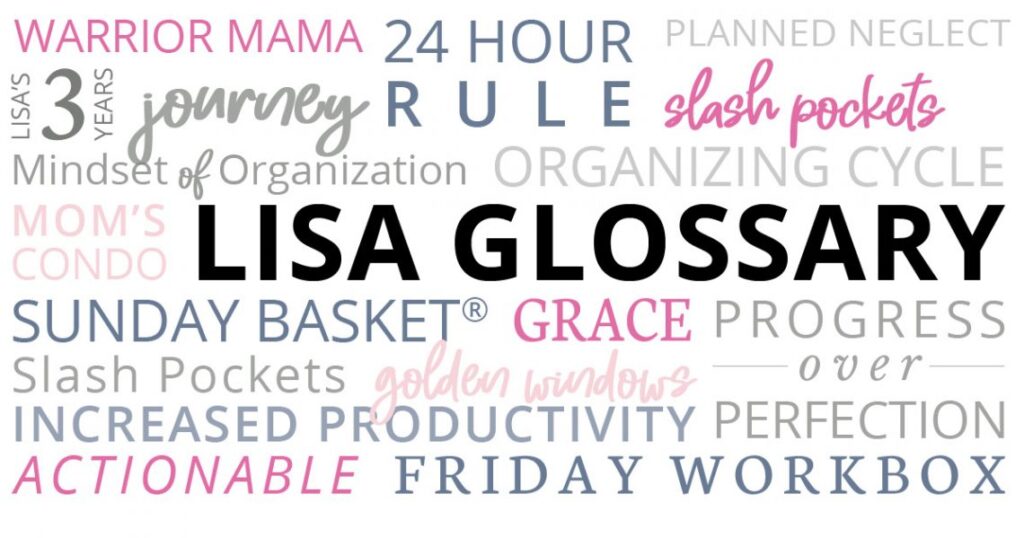
Lisa Glossary Podcast Playlist
The Organize 365® Story
This is the Organize 365® Story. In this first podcast. I share the five foundational principles that are the bedrock of everything I teach inside of Organize 365®. Sharing these principles with you helps to ensure that we have a common vocabulary and understanding.
No matter when you begin your transformational journey (or when you need to reset or restart), this information will be here as a reference for you. Listen in as I teach you about the ideas and beliefs that are at the core of everything I teach and how I approach organizing.
Organizing Foundation – Part 1
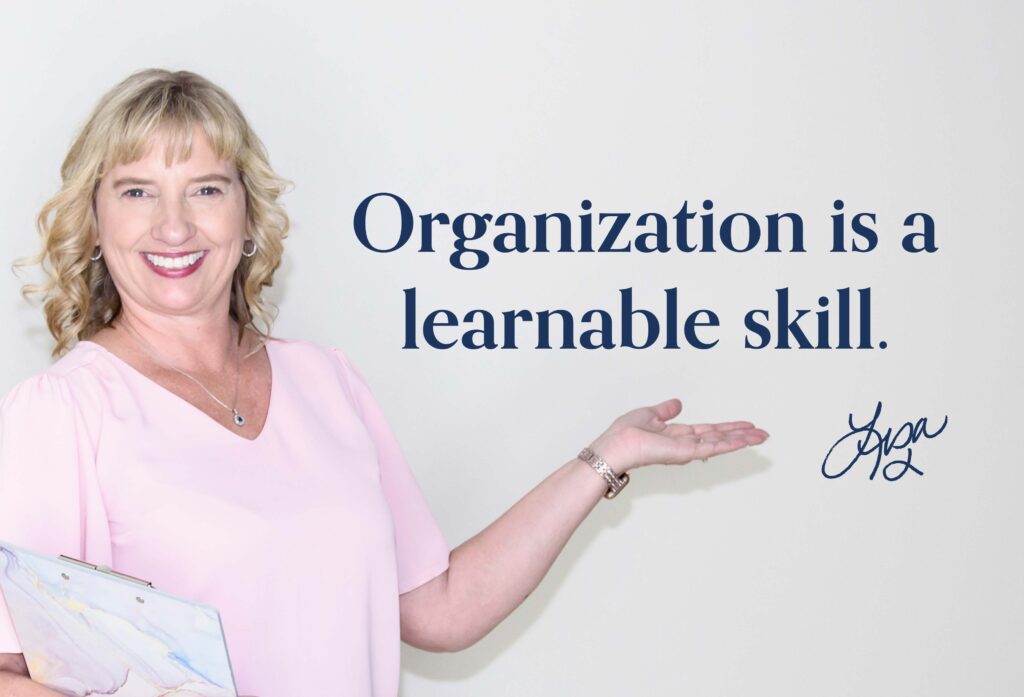
Organization is a learnable skill.
I have taken all of my knowledge and experience about how to be a good teacher, and I have poured them into Organize 365 so I can teach YOU the skills you need to be an organized person and live an organized life. I have created a consistent process and organizational systems that anyone can learn and apply. I have been blessed to see how my teaching helps others achieve transformation of their homes and their lives.
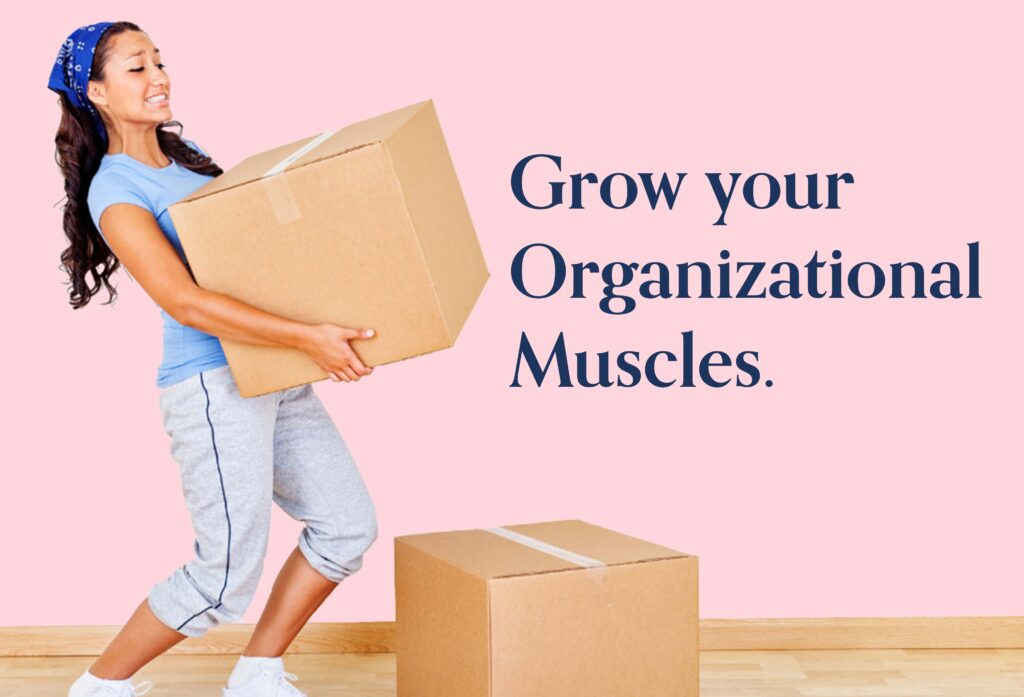
Grow your organizational muscles.
The Organize 365 teaching is meant to help you grow both your physical and mental organizing muscles. I start teaching you with small easy tasks, help you learn the skills, and grow your muscles. We start with something simple and quick like a fifteen minute silverware drawer clean out and work up to organizing a hot mess or storage room. The skills I teach you about organizing build upon one another and help you grow your organizing muscles along the way.
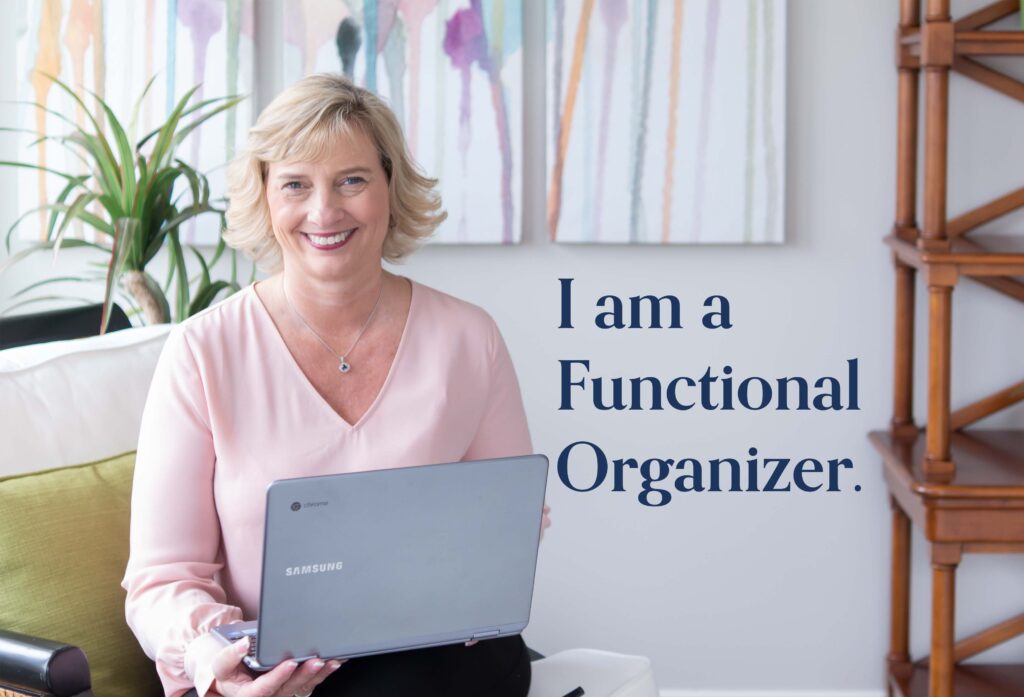
I am a functional organizer.
I had always wanted to be a Pinterest perfect, magazine worthy, dream organizer. I started out organizing without the time, money, or resources to make things beautiful in the way that social media tells us they should be. I climbed out of disorganization and debt in order to get my own home and life back on track. I learned that a functional home that is decluttered and organized is what is truly important and I teach you how to get organized too.
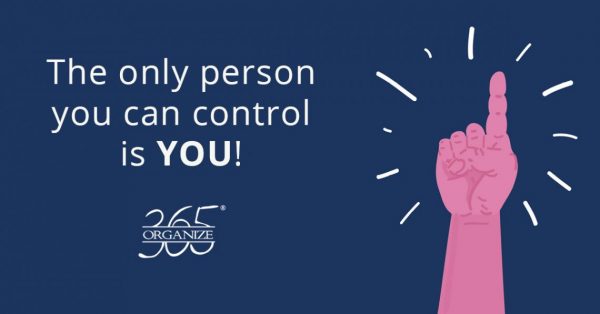
The only person you can control is you!
Often, I want my kids or my husband to clean up something around the house because it is bothering me. But, when I really look at the house, I find that I have more projects out than they do. However, I have seen time and time again, when you focus on yourself you start making forward progress, have more energy, and become more organized. Others are attracted to your success, and they start to follow along and they will begin to organize their own spaces and things.
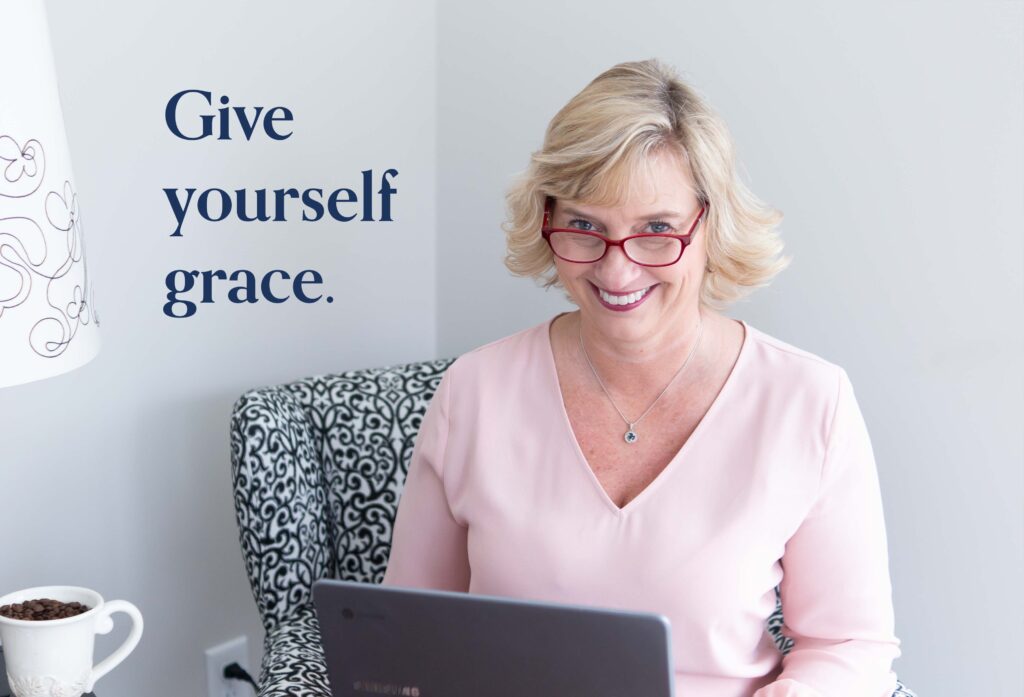
Give yourself grace.
Give yourself grace. You cannot fail to learn the skills of organization,
only I can fail to teach you what you need. Organize 365 will always
offer you grace. Our programs are all lifetime memberships. I want you to move along at your own pace and use the resources you need to be successful. You may not be organized yet, but you can walk through this transformational journey alongside us.
Discovering Cycles and Seasons of Organizing – Part 2
I want to share the cycles and seasons you will experience along your transformational journey to an organized life. This podcast and our new glossary will help the Organize 365® community to have a shared vocabulary and foundational language.
Ages & Generations
The way we use our home is influenced by our age, the number of people in the home, and the area of the world we live in. In addition to our actual ages, we are influenced by our generation. Each generation is defined by coming of age life experiences, economic conditions, and the political environment that influence their thoughts for the rest of their life. Behaviors and ways of seeing the world are impacted by things like the Kennedy assassination, the Challenger explosion, or the 2020 Coronavirus shelter at home
experience.
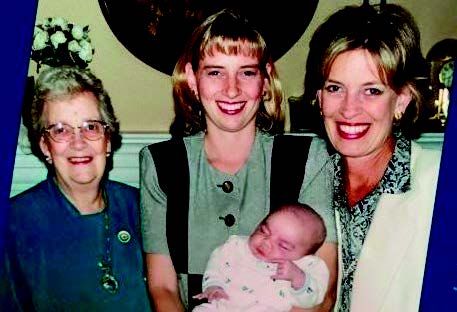
The Silent Generation (Born 1928 to 1945)
These people were raised during or right after the great depression.
They often do not have a lot of things. However, they invest their money in very nice pieces and have fewer high quality things that they really want to keep. They value the things they did purchase because it was so hard to earn the money to buy their items. They have a very hard time decluttering because they also recall a time when it was hard to get what they needed.
The Baby Boomers (Born 1946 to 1964)
This generation was born into plenty. They had the most money, jobs, wealth, opportunities, and power of any generation in the US. They have accumulated lots of things: houses, cars, political power, and so on. Their stuff is meaningful to them, but they do not hold it as tightly as the Silent Generation.
Gen X (Born 1965 to 1981)
This has been one of the smallest generations. The people of this generation are highly independent. They often grew up as latchkey kids and had little adult supervision for much of the time. Overall, they go with the flow. They can have characteristics of baby boomers who save or millennials who lean towards minimalism.
Millenials (Born 1982 to 1996)
Millennials are another big generation in terms of numbers. They are firmly into adulthood. They were highly involved in the gig economy (over being corporate workers) and generally value experiences over possessions. They have leaned towards minimalism, but are now entering the accumulation phase of life and are starting to acquire homes and grow families.
Gen Z (Born 1997 to 2012)
These are the people in high school and college right now. They are a very artistic generation, and are most similar to the Silent Generation. They will likely be affected by the COVID-19 Pandemic, but that will take several years to manifest.
Life Phases
As a professional organizer, I observed that women generally progress through four different life phases. No matter if you have children or not, we all progress through these at roughly similar times. Sometimes these phases do vary by a few years depending on individual circumstances. In the podcast, I share the details of childhood, accumulation, survival, and downsizing and how your phase of life affects your organizing needs. Each phase of life requires you to learn and develop new skills to be organized in your home and life.
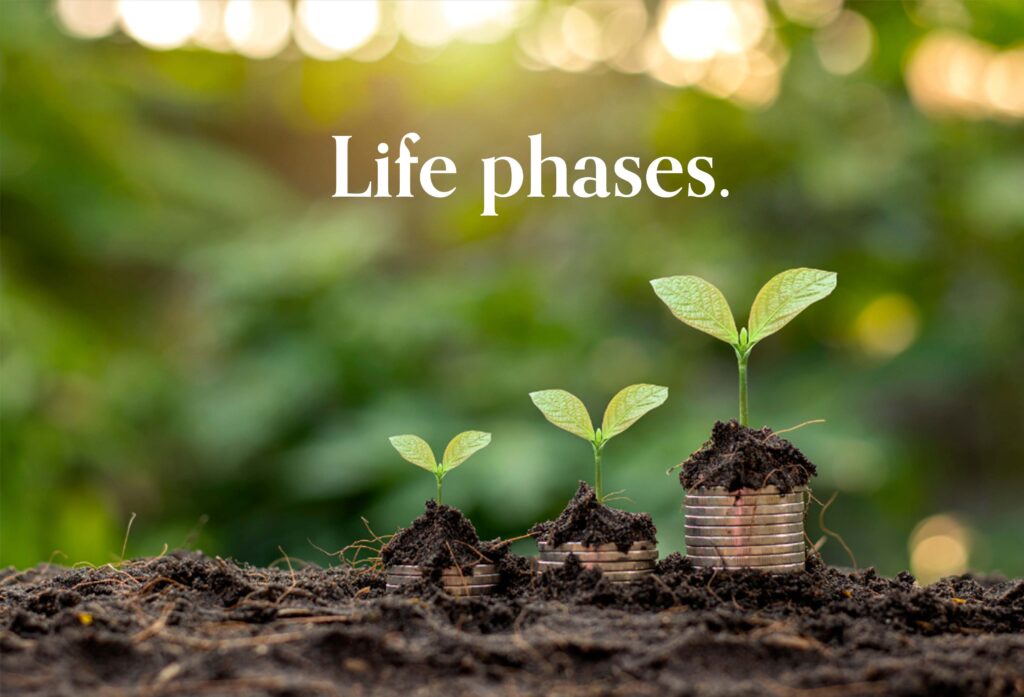
Childhood (Birth to 21)
At this time in your life, you are generally living in a family home and have only a bedroom to call your own space.
Accumulation (Age 22 to 39)
Accumulate houses, spouses, kids, jobs, and pets. You are moving out of your childhood living experience and need to accumulate all of the trappings of adult life. These can be garbage cans, vacuum cleaners, hammer & nails, lawn mowers, or pots & pans.
Survival (Age 40 to 55)
Balancing home, kids, parents, job, and adult life. More time is spent in the car, and outside the home. Providing caregiving for loved ones can take up a lot of time and energy as well. It can feel very hard to make progress on organization at this time of life because of all of the demands for your time and attention.
Downsizing (Over age 55)
Starting to look at legacy and making sure you have time and energy to devote to sharing your unique gifts and fulfilling your purpose on this planet. You deepen your thinking about what items have value to pass along to others, and what possessions have meaning. As people approach their empty nest time, they release possession and often look for smaller homes and less stuff.
Stages of Organization
In each phase of life, in order to achieve an organized life and to have the capacity to pursue your unique purpose, you must work through each of the three stages of organization. In the podcast, I share the focus and skills needed to declutter, organize, and increase productivity.
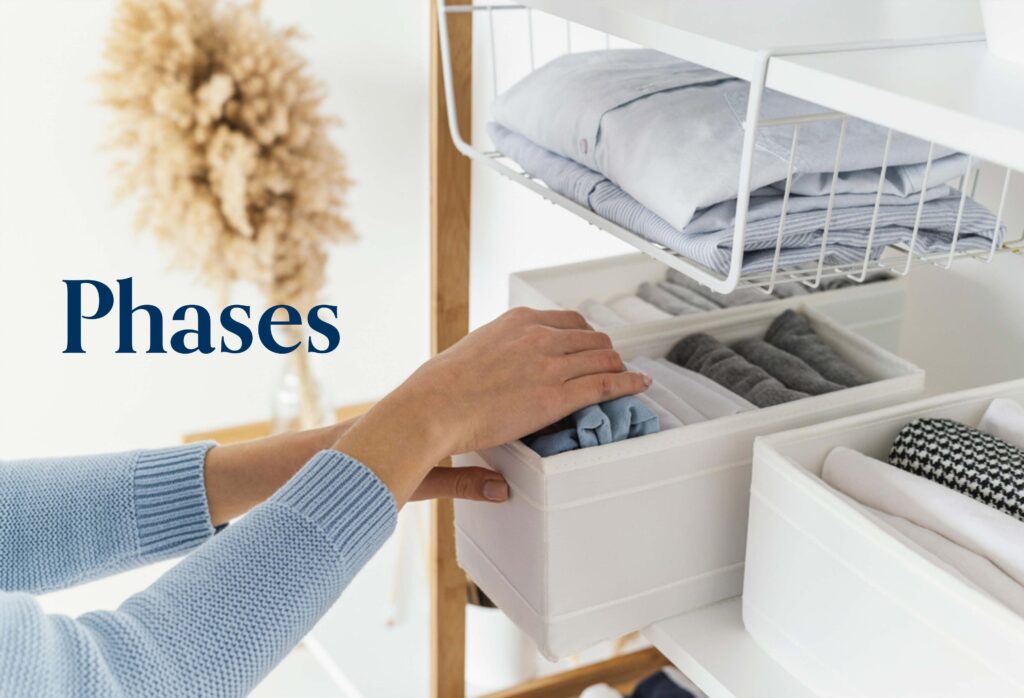
Declutter
Removing things you no longer need or want.
Organize
Putting like things together and into a designated space or container.
Increase Productivity
Getting more done in less time by identifying tools and techniques like planning, task stacking, and task batching.
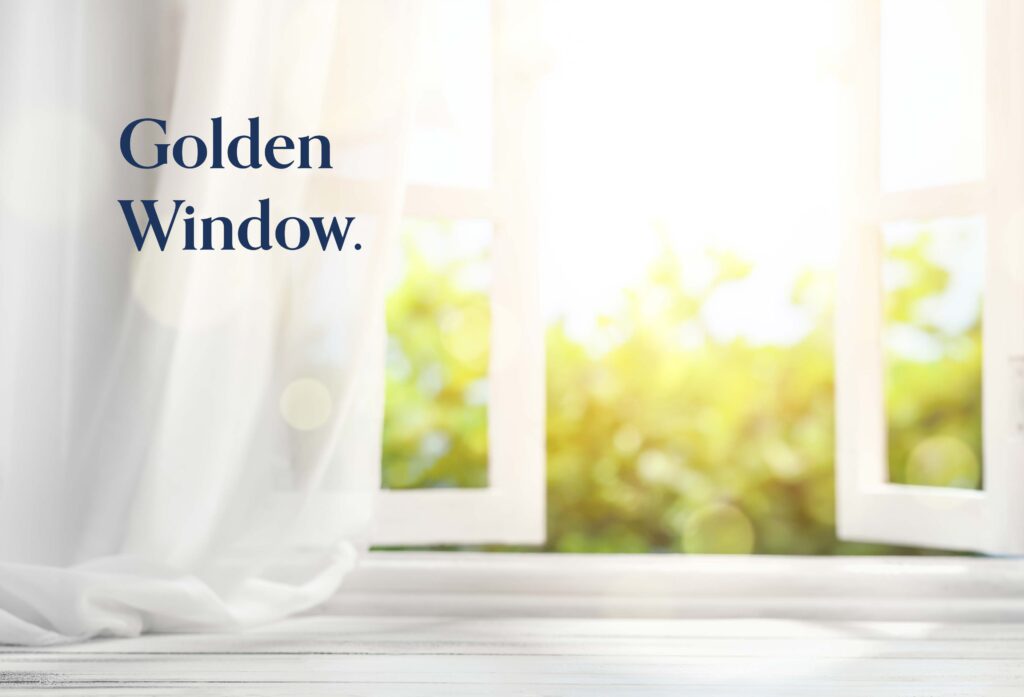
Golden Windows
Golden windows is a phrase I created to help articulate different times that are optimal for getting started on your transformational journey to organizing. Golden windows open at certain times when organizing energy can be higher than normal and can lead to making big progress towards organization. Occasionally, multiple golden windows align and the energy overlaps and you can make incredible progress towards organization. In the podcast, I detail some of the golden windows: each calendar year has three natural times to get organized. Additionally, changing life phases, life changing events (new baby, new home, new job), and other golden windows are explained and identified.
From Overwhelm to a Plan – Part 3
As things get moving faster and you begin to feel overwhelmed, the way to regain clarity and be able to adjust from being reactive to productivity is the Sunday Basket®.
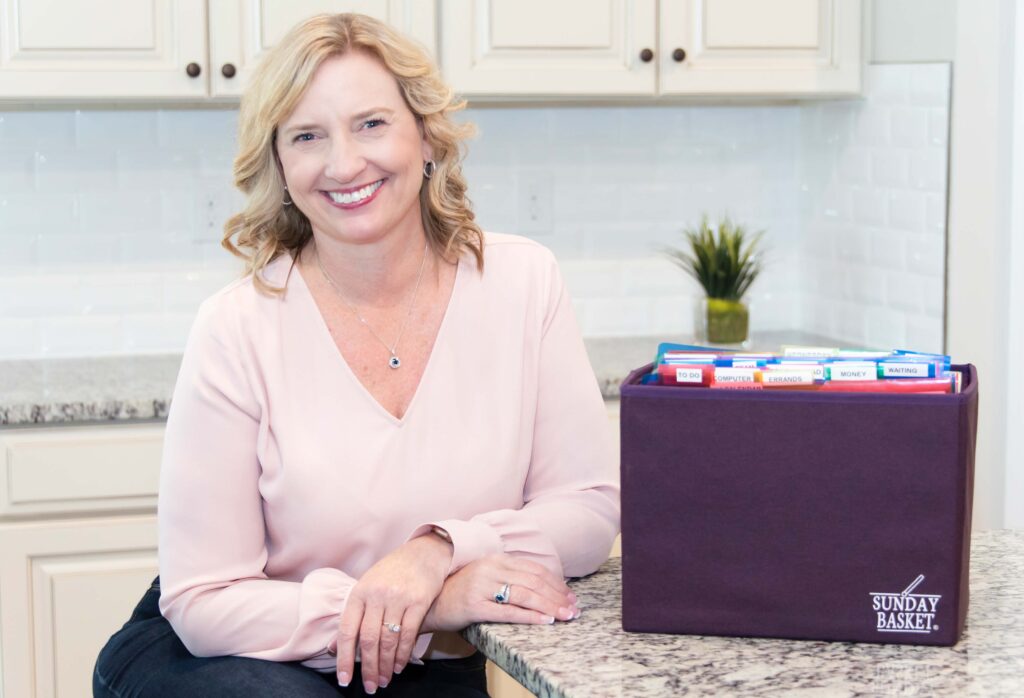
The Sunday Basket®
A Sunday Basket is a file box (mine originally was a medium market Longaberger basket and the name stuck! with color-coded slash
pockets and notecards. A Sunday Basket holds actionable (not archive papers. A Sunday Basket eliminates your to-do list, clears your mental clutter, delays decision making, and moves you from reactivity to proactivity. When you are organized, you get more time. Planning my week ahead of time allows me to maximize my productivity. Planning helps you to build in efficiency – you are able to multiply time and get the most out of your effort.

Slash Pockets
A slash pocket is a plastic, 3-hole punched divider originally designed for binders. They have tabs along one edge that can easily be labeled. Slash Pockets are sealed on three sides creating diagonal pockets that hold notecards and papers of all sizes. They securely hold the papers inside. They are transparent so you can see what is inside without having to open it or remove everything. Each slash pocket should hold a pile of paper to group like tasks or hold papers for a project.
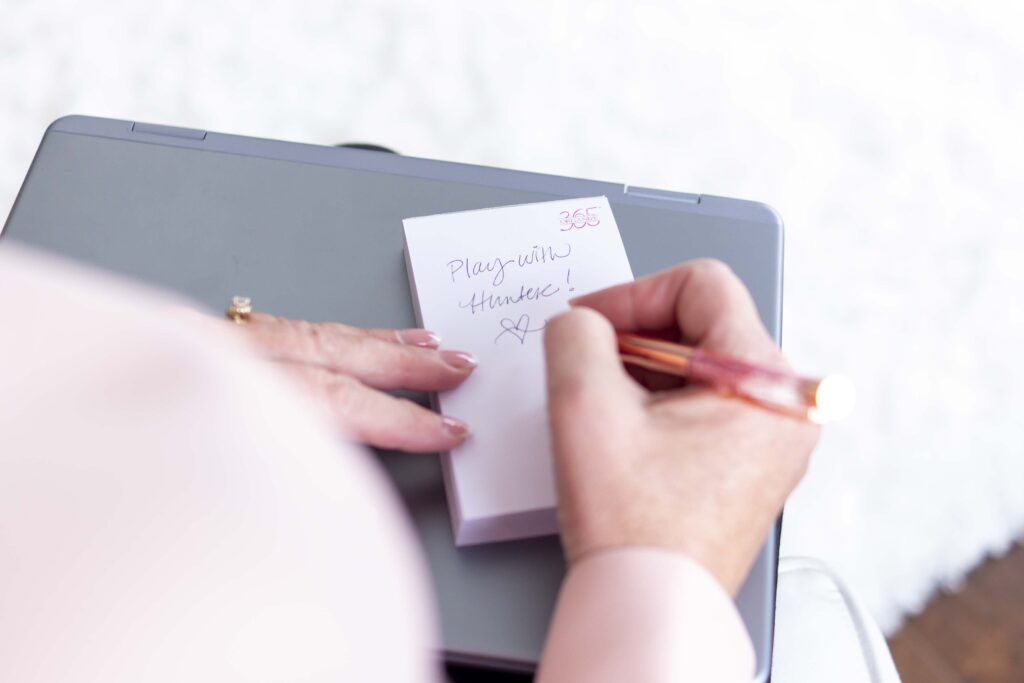
Notecards
I use and recommend notecards (index cards) for your actionable thoughts and ideas during your brain dump (see below). I only put one to-do or idea per notecard. The things you write down will not have equal priority or urgency. Some are great ideas, but cannot be done now with the resources you have. Some are for the future (like gift ideas or travel dreams). Some are reminders about another person. Some you will look at in a week and realize you will never do—and you can throw those out!

Brain Dump
A brain dump is sitting down and free writing all of the things nagging at your brain. I recommend one item per notecard. And, even if you are pretty sure you wrote it down already, write it again. Think about to-dos, worries, and things to remember (appointments to make, cards to send, home repairs, shopping lists, errands, books to read, vacation plans, questions to ask, financial matters, wills and estate plans, etc.). Get it all out of your head!
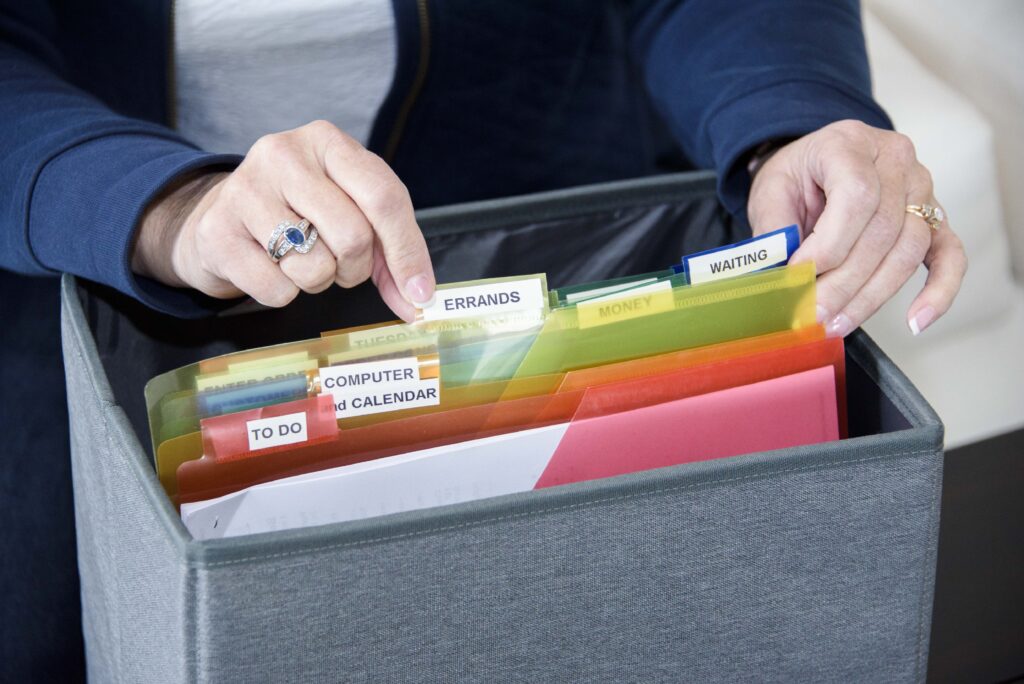
Color Coded
In the Complete Sunday Basket System, we use color coding for our slash pockets. I had to manufacture custom slash pockets for the Sunday Basket. We have twenty-five custom color coded slash pockets: five rainbow and sets of five pink, five purple, five blue, and five green. Color coding helps your brain to think of the slash pockets in themes and groups. Every time you grab a green slash pocket, you know you are dealing with something related to money or finance.
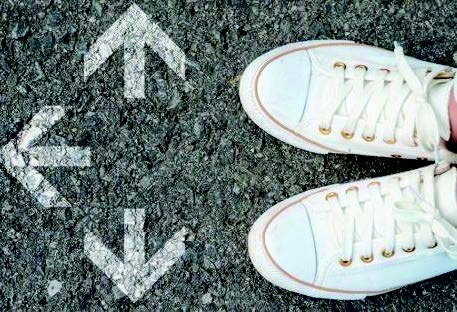
Delayed Decisions
One of the benefits of the Sunday Basket is that it allows you to delay your decisions in a planned and effective way. Each week, your brain considers the best use of your time and your money and as you
continue to delay, things either rise or fall in importance. This leads to making more purposeful decisions. I found this true in evaluating the charitable requests Greg and I received. We were able to give a more significant and purposeful contribution to causes we cared about.
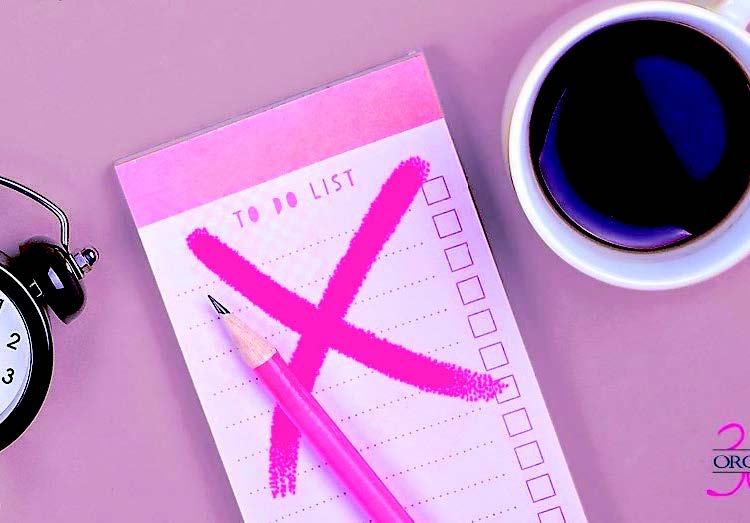
Eliminate the To-Do List
I no longer have a written to-do list! Instead, I get as much done as possible during my weekly Sunday Basket time after I’ve deferred most decisions all week. Anything that is not done (usually errands, phone calls that need to be made during business hours, or projects that require another person gets scheduled time on my calendar during the upcoming week. Anything that does not need to be done this week goes back into the Sunday Basket and gets reviewed again the following week. No more legal pads filled with overwhelming to-do lists!
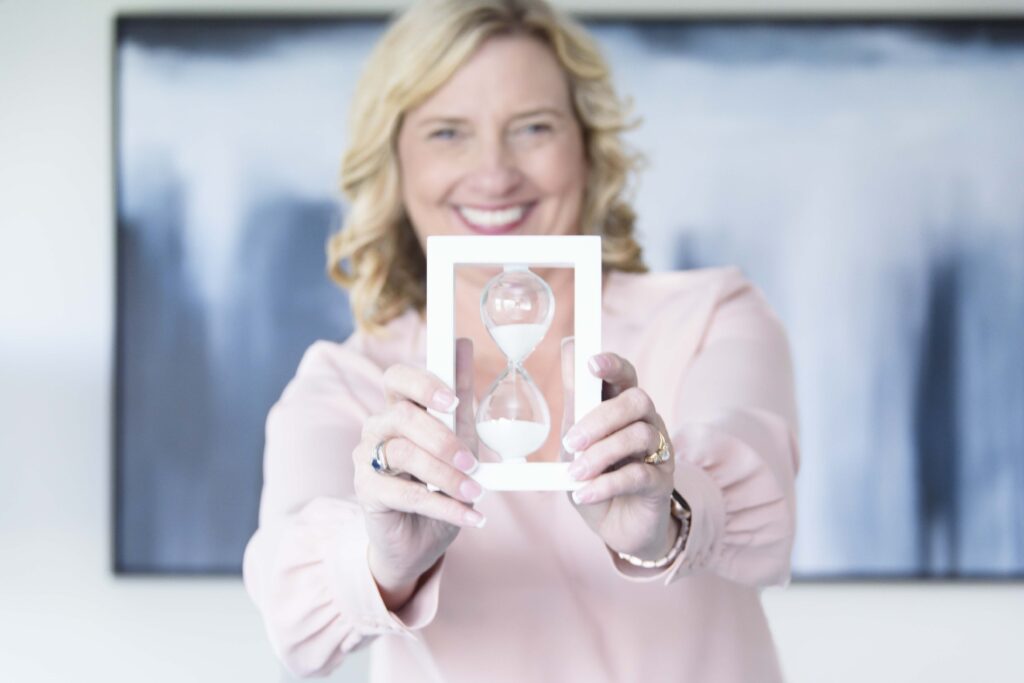
Every minute spent planning saves you 3-5 in execution
I spend ninety minutes working on my Sunday Basket every week, and it saves me between four and eight hours every week by being more organized, having what I need, and planning ahead. I also save money and headaches, too! Working through your actionable items on Sunday and planning your week makes it easier to pivot if an opportunity or a challenge pops up. Planning gives you bandwidth, clarity, and peace to stay calm no matter what happens.
Renaming Everyday Home Spaces for Modern Life – Part 4
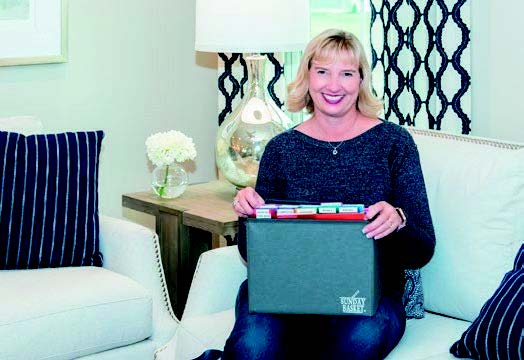
#PermissionGranted
I am a functional organizer, and I want to challenge you to rename and repurpose your home for the life and family you actually have today. I encourage you to be creative with the ways you use and name the spaces in your home. Figure out what works best for your family in the space you have. Make your home work for your family rather than trying to contort your home to fit the ideas of some designer that has never lived there.
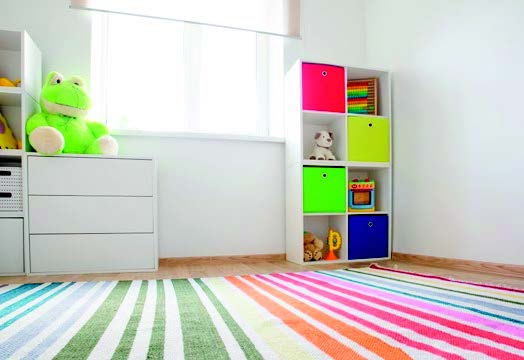
Mini Apartments (Child’s Bedroom)
I have always viewed my children’s bedrooms as their own mini apartments. For kids, having them think about their bedrooms as a mini apartment gives them ownership of the right amount of space to care for as they learn organizing skills. They learn how to take responsibility for their space, but I am still the landlord and set the rules for the way the space can ultimately be used.
In many ways, I encouraged my kids to set up their room to reflect them and their phase of life. We redecorated their rooms every 3-4 years and I allowed them to paint, move furniture, and take the doors off their closets. At different times, my kids had a TV and a small refrigerator in their rooms. I do not give parenting advice, but my goal was to have my kids learn to make decisions about their living space and learn to be clean and organized on a small scale.
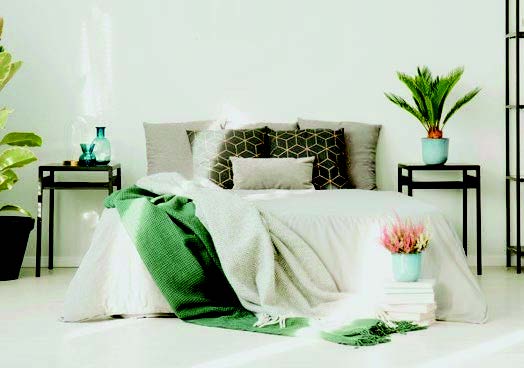
Condo (Adult Primary Bedroom Suite)
While I remain the landlord of my children’s bedrooms, I think of my own bedroom space as a condo. It is a bigger space with less rules. In my home, we have a separate, private bathroom. For many years, I even had my office set up in my bedroom. I have passion project space in my condo – I do puzzles, read books, watch TV, and can comfortably relax and hang out inside my primary bedroom.
I think it is important for each person to have a space in the home that is just for them. Decorate it and set it up so that you have a private space to enjoy. Contemplating your primary bedroom as a private condo residence can change the way you think about your home and the things you keep inside that space.
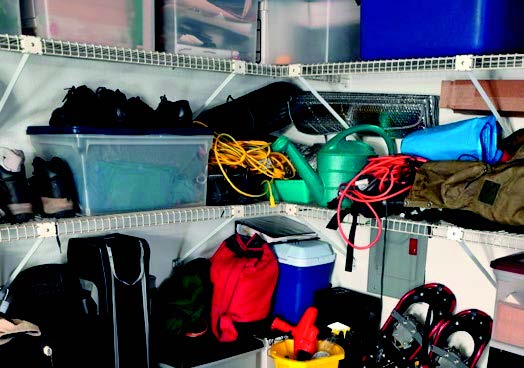
Hot Mess Room
The Hot Mess Room (HMR) is the space in your house where you put stuff that you do not know where else to put it. This is the dumping
ground for all the things that do not have a home or you are uncertain about. This can be anything from a junk drawer to a spare bedroom or a storage unit to your whole house. Often, we keep shoving things randomly into the space with no rhyme or reason about where things go.
Although my ultimate goal is to help you get organized, I highly recommend you identify a Hot Mess Room as you get organized. Having a designated place to dump stuff allows you to make progress on the rest of your organizing. You can get the rest of your home organization completed, and then tackle the Hot Mess Room. All Access members have access to a 28 day class to help them tackle the Hot Mess Room at the end of their organizing journey and turn it into organized storage.
Identifying a single place for all of your postponed decisions and leftover items allows your mind to rest on some of the more difficult decisions so that you can continue to make progress on your organizing journey. You have a single place to put all the things that you do not need to keep in your current life or are not ready to get rid of yet.
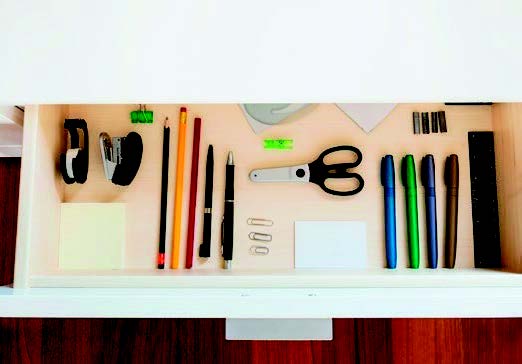
Office & School Supply Store
As you organize your home, I recommend consolidating all of your office, school, and craft supplies into one central location. Once your
children are about eight years old (and you no longer need to lock up and hide your supplies), I recommend creating an office and school
supply store in your home. When someone needs something for work, school, crafts, or a project, there is only one place to look for the things you need. Having an in-home supply store will help you save time and money. You will stop buying extras because you will always know how much of a given item you already have. Feel free to move the store location around the house as your kids grow up and how you use the house changes over time.
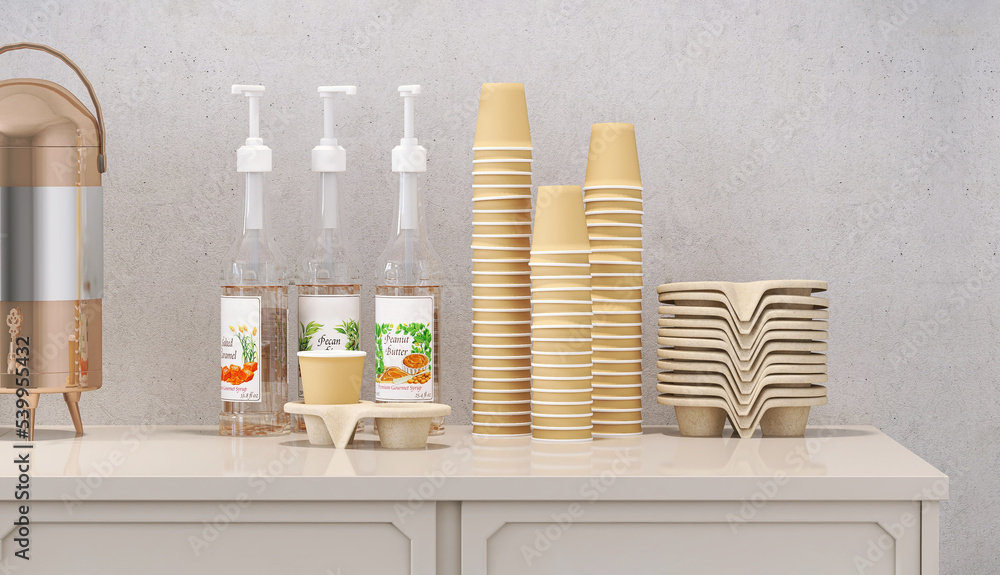
Drink Station
As a functional organizer, I recommend that most families consider
setting up a drink station in the kitchen as they get organized. I first
realized this would be an effective solution years ago when I was doing in home organization for a family with five kids. Having so many people in the home meant that there were many different drink preferences and beverage items—mixers, blenders, coffee makers, smoothies, protein drinks, coffee, tea, water bottles, mugs, wine glasses, and similar things were spread all over the kitchen. Moving those to a single location in the kitchen helped family members find things, improved the traffic pattern in the kitchen, and made it easier to cook and wash dishes.
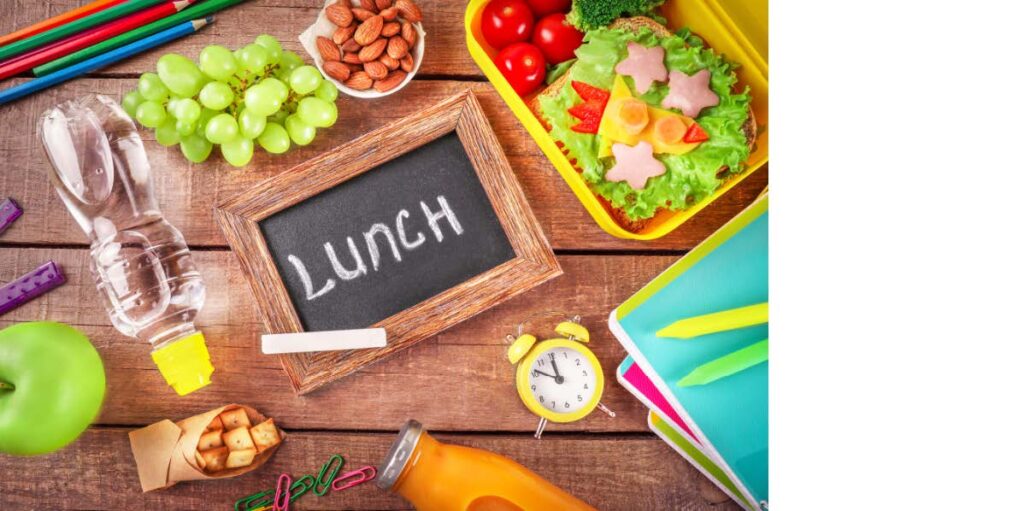
Lunch Station
If the members of your family pack lunches to take outside the home, I recommend setting up a lunch packing station. Set up your food storage items (zipper bags, food storage containers, lunch boxes), snack and lunch portions of food (chip bags, fruit cups, granola bars, desserts), and the carriers (lunch box and thermos) in a cabinet and/or drawer. Putting all of your lunch items together in a space makes lunch packing more efficient.
Home Organization Perspective – Part 5

There are NO Organizing Police
Each of us can be influenced by what we think others think about us. How we make decisions can be clouded by the expectations we put on ourselves or the stress we experience by the real or imagined voices of our mother, mother-in-law, friends, or neighbors. We imagine that other people “know” the right way to organize or are judging our decisions. My goal is to help you get to a decluttered, organized, and functional home. The reality is that other people do not think about you that much.
I want you to feel free to discard gifts, refinish furniture, or organize your home in whatever way works for you and your family. The more bold you are with making your home what you want it to be, the more comfortable you will be living in it and the more you will love it. People will feel the energy of your love and will enjoy being in your home.
Ask yourself: What would you do if you weren’t worried about what other people thought?
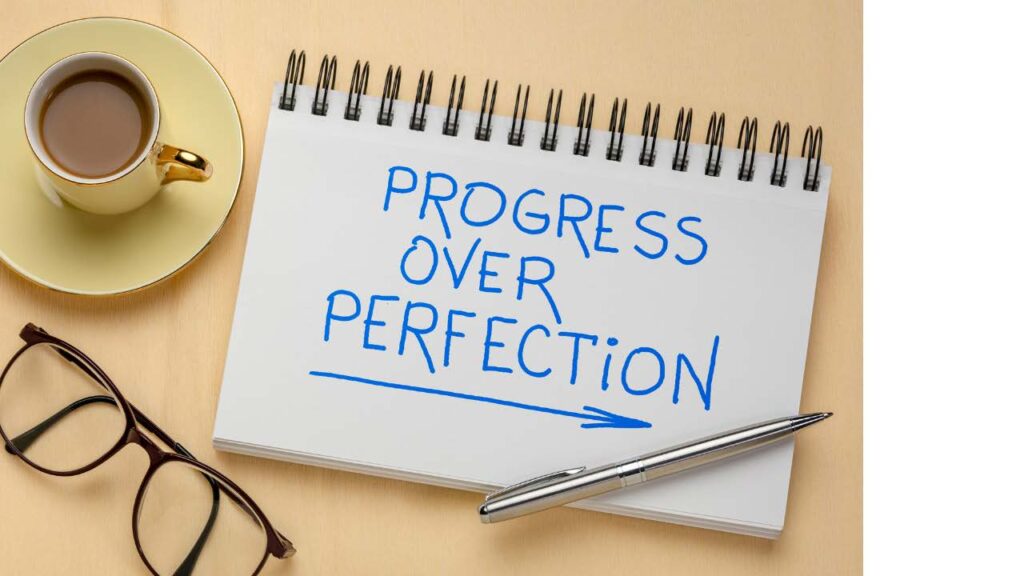
Progress Over Perfection
When I encourage you to focus on progress over perfection, I want you to just get started and take the next step. We are not trying to get to perfect. I want you to make your home functionally organized so you have more time to do the things you are uniquely created to do.
Focus on your progress: take the next step. Focus on what you see in
front of you to declutter, organizer, or update to improve your home
for the people that live there. (Remember, there are no organizing
police!)
Ask yourself: what is the next step I can take to make progress on my
home?
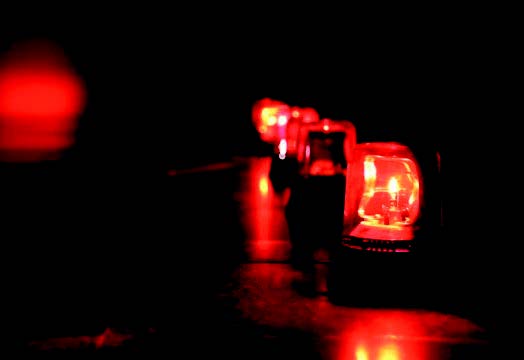
There are NO Organizing Emergencies
I created this rule for my team. If I am honest, I also created this rule for myself so that I was able to keep things in perspective. Things will always go wrong in our lives — in both home and business. These things may be inconvenient, but a website link breaking is not an emergency. We fix things as soon as we can, but I no longer create chaos in my company with manufactured emergencies.
I want you to avoid creating chaos in your own life. When you are getting ready for guests, prioritize what areas will be seen, be realistic about what needs to be done, and close off the other areas. You can also choose to prioritize areas that are making you crazy, and decide to delay the rest. It can be easy to feel like we need to have every area clean and ready immediately. Focus on making your home as good as it can get.
Ask yourself: Is this a true emergency or am I creating chaos?
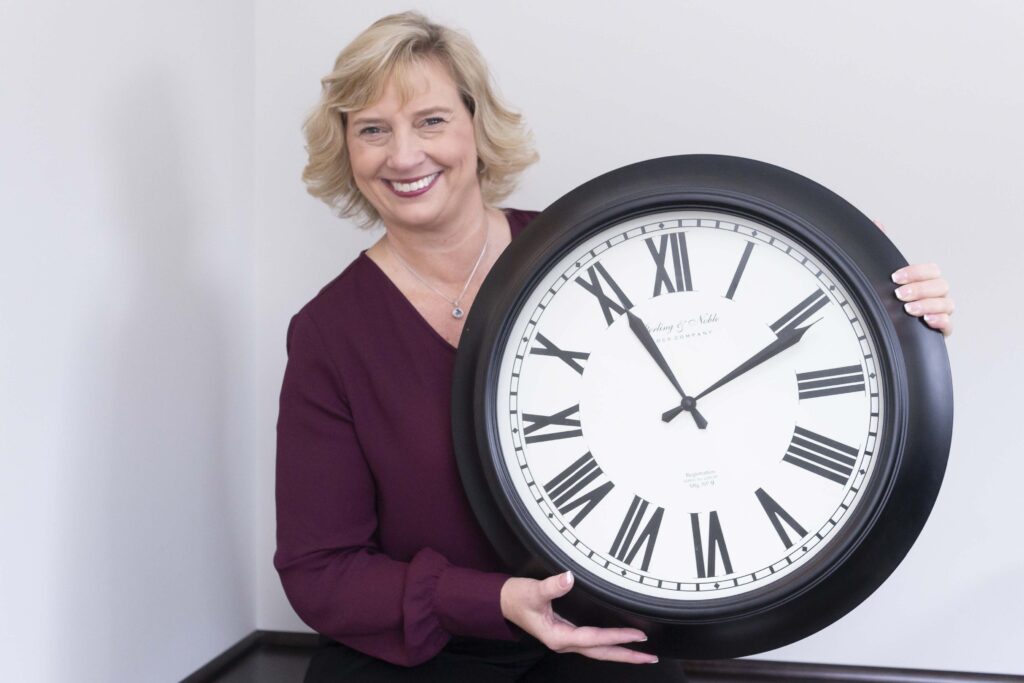
The 24 Hour Rule
In 2002 when I worked on getting my home and life organized, I realized I had a lot of clutter from collections and projects I wanted to do one day. I had some guilt about these undone projects and lots of good ideas that I did not have the time or energy to get done. I love to collect ideas—recipes, crafts, teaching ideas—even when I do not have a way to use them. The 24 hour rule is going to free you up from all the things that you might do, should do, could do, or want to do someday. Instead, it’ll teach you to focus on today.
The “24 Hour Rule” is a rule I impose upon myself: when I find a great idea, I ask myself, “Can I do this within 24 hours?” If an idea is that good, I take action on it within 24 hours. Following this rule has allowed me to reduce guilt and to give myself permission to let go of things that are good ideas that are not actually going to get done. This has helped me to avoid or delay unnecessary purchases and to stop adding new obligations and expectations on my time and energy. I no longer buy, print, or save things unless I am going to take action on them within the next 24 hours. For books, I am even stricter. With immediate electronic delivery, I have to be ready to start reading a book right now before purchasing. However, I do not put pressure on myself to finish books. For me, buying books is the least expensive way to educate myself and I am willing to risk not loving something—as long as I start reading.
Ask yourself: Can I take action on this (idea, project, recipe, book, etc.) within the next 24 hours?
Redefining How We Look at Time – Part 6
The first person that helped me to change my mindset about time was Laura Vanderkam. I have spoken with Laura on the Organize 365® Podcast, reviewed her book 168 Hours: You Have More Time Than You Think, and she has really helped me to think differently about time. Laura showed me that a week can be divided in half and that helped me to think about how I spend my time. Although I do like to sleep a lot, I have a lot of awake hours every day and with focus I was able to increase my endurance for making decisions and using my time to my own advantage. I became much more aware of time and how I spend it. In this podcast, I want to pass those lessons on to you.
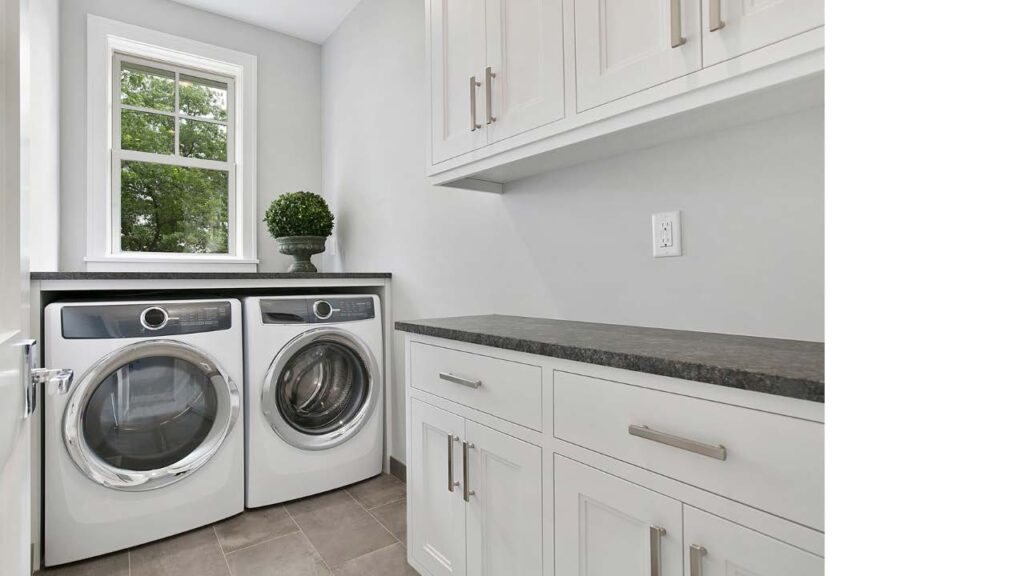
Get Your Machines & People Working
When you are starting your day, I recommend getting your machines and people working first. As I structure my day, I focus on getting my machines running first, and then I make sure my people have everything they need to get their work done. This creates great increases in my productivity because these others are set up to make progress before I even get started. In this way, I am accomplishing far more than I could do on my own.
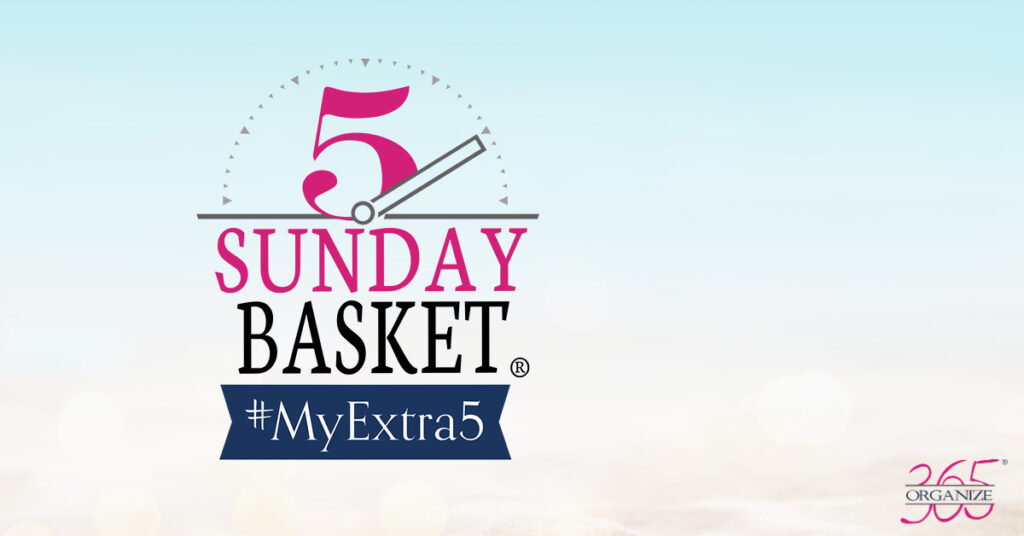
#myextra5
The Sunday Basket consistently saves people at least five hours a week by getting organized and being proactive. Through organization, you get extra time, and we all need more time. Follow or tag Organize365 on Instagram and share how you are spending your extra time once you get organized! — #myextra5
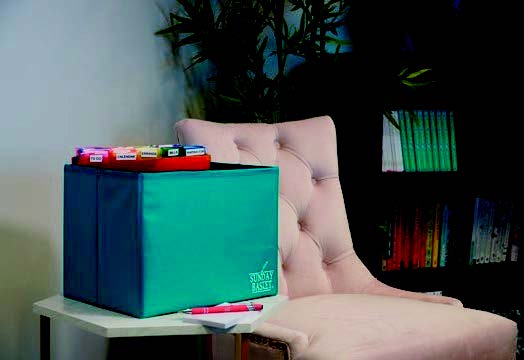
Task Batching
Task batching is grouping tasks that require similar brain power and doing them together in a group. When you process through the items in your Sunday Basket each week, you group tasks by slash pockets. After you have done all of your sorting and you are ready to work, the tasks in the slash pocket are similar.
One slash pocket will have bills to pay. Other will have coupons for errands. A third may have phone calls to make. Batching your tasks
together helps because you will be in a mind frame of thinking about and having the supplies to complete a series of related tasks. Keeping your brain focused on these similar thoughts helps you to get more done and to get it done faster.
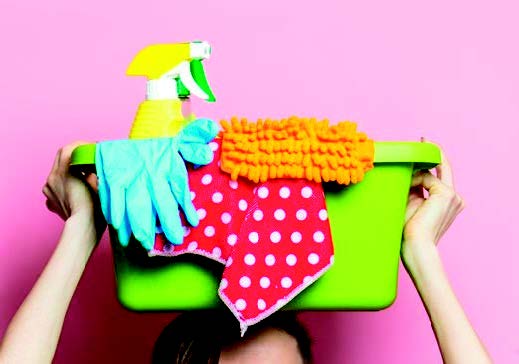
Task Stacking
Task stacking is a method of layering tasks in order. I use task stacking when I make a morning, afternoon, or evening routine. I add a new task to an already existing habit or framework. I also will often make a stack of tiny random tasks and complete them in a thirty minute time block. For more on task batching and task stacking, you can listen to Podcast Episode 254.
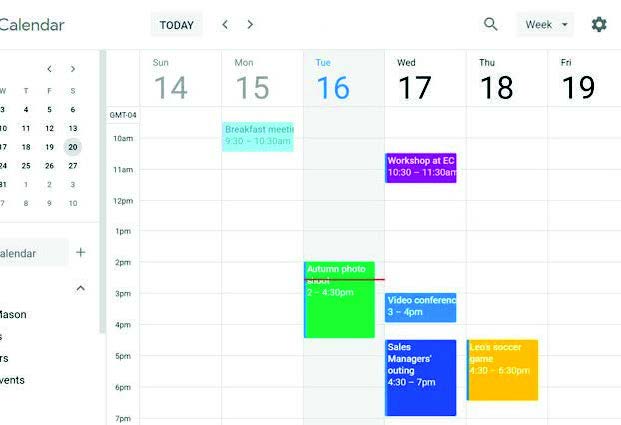
Time Blocking
I use time blocking when I plan my week during my Sunday Basket time. I estimate how long a task will take to complete, and I block out a work period on my calendar. I can do this for a group of tasks like running errands, or I can do it for a specific task like recording a podcast on a particular topic.
With time blocking, I look at my day and I consider where I will be, if I need to allow time for driving or transportation, and what else will be happening in my environment. When I set aside a time block, I am protecting enough space on my schedule to make significant progress on my task. By scheduling my important tasks, I no longer keep a to-do list but get everything done.
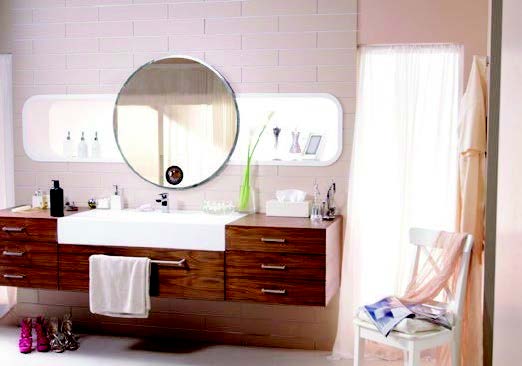
Planned Neglect
I was first introduced to the idea of planned neglect when I was a Creative Memories consultant. Planned neglect is the acknowledgment that something should happen and is scheduled to happen, but you decide not to do it. So many tiny daily to-dos and tasks get in the way of bigger projects because there is never a big enough block of time to make progress on your goal. You are the boss of your own life, and you can plan to neglect whatever tasks do not fit. There is no way you can do all of the roles and responsibilities inside of a house to perfection. Choose what is most important to you and your family, identify what areas you are owning and focusing on, and communicate with your family where you are going to let go. For more on dividing up household tasks fairly, I had Eve Rodsky of Fair Play on Podcast Episode 312.
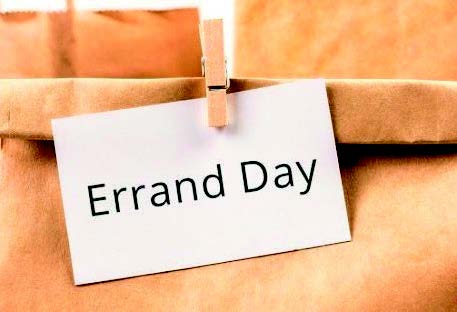
Errand Day
Although the current state of the world has cut down on errands and trips to the store, when it is time to again leave the safety of home, I still recommend planning an errand day. I can recommend a few tips to make your errand day more efficient and productive: make a list of all the places you need to go, plan your route, and start from the place farthest from your home and work your way back (any incomplete errands will be closer to home). You can find more details in Podcast Episode 280.

3 Mini New Years
There are three times each year where there is the highest energy and a Golden Window for getting organized. We have a natural energy to declutter and organize each of these three times during the year. January 1st, late spring/early summer, and labor day (school year) all have a high organizing energy. Each mini new year starts with an energy to get organized, focused, and to plan. Near the end of the mini new year, there is an energy that is harried, chaotic, and focused on celebrations and memory making. The 100 Day Home Organization Program repeats three times a year in these cycles to take advantage of the peak of organizing energy.
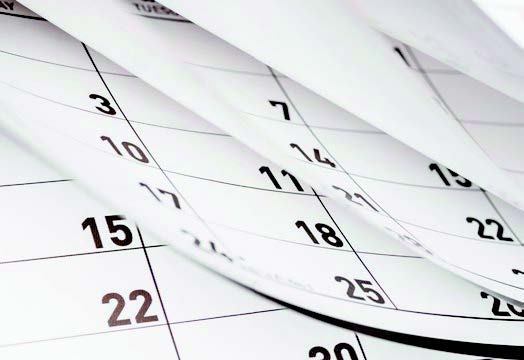
Divide Your Week in Half
In Laura Vanderkam’s book 168 Hours, she taught me that you can divide the week in half at 8 pm on Thursday evening. So, from Monday 8 am to Thursday 8 pm is the same amount of time as 8pm Thursday to 8 am Monday. I learned that how I divide time is not correct. Five weekdays and a two day weekend is not really true. When I plan my weekend, I start looking at the time starting at 8pm on Thursday to start my plan for what I am going to get done over the weekend and the amount of rest and relaxation I need.
Redefining The Meaning of “Work” – Part 7
Work is a major concept in the Organize 365® Story. I have always been careful about how I define work. As a woman, other people do not always see what I do as “work.” Over the years, I have wrestled with how I define work. At different times, I have valued my work based on the income that I have earned. In the past, I worked a lot of little jobs to pay little bills. Throughout our lives, we all love to work, to learn, and to make others happy. You can reclaim these feelings as an adult. When we can more clearly see all the different kinds of work and jobs we have, we can give ourselves permission to treat them as important work. When we level out how we spend our time so work for pay and not for pay are both important, we can give them equal weight, merit, and focus on making them productive.
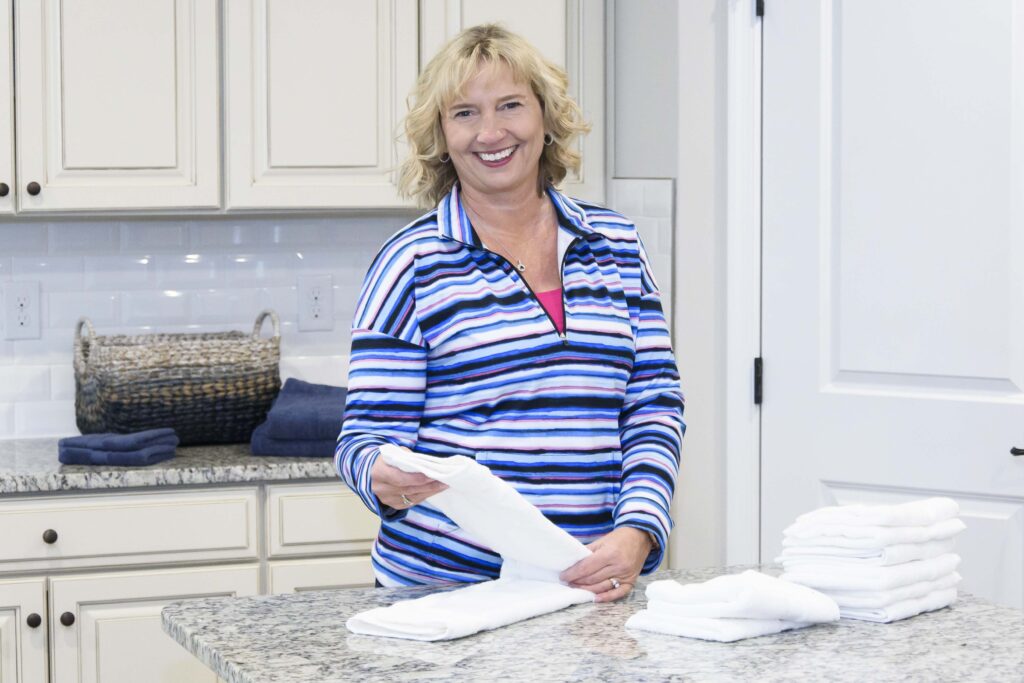
Redefining Work
Work is whatever you spend the majority of your time doing. Sometimes we earn a paycheck, but we are ALL working. Some members of the Organize 365 community volunteer forty hours a week, and that is work. The kids in the Kids Program go to school as their work. Regardless of our paycheck, our work is worthy of being planned, optimized, productive, positive, invested in, and focused on. Each and every person has a unique purpose or calling to contribute to this world, and I want to help you discover yours.

Being an Adult and a Homeowner is Work
Being an adult and a homeowner is work. The Pew Research Institute
found that it takes 26 hours per week to maintain a household without children or childcare. Household related tasks like cooking, cleaning, yard work, laundry, grocery shopping, house maintenance, paying bills, and other #adulting tasks end up being a part time job.
When I looked at my life, I realized that I actually had multiple jobs but only one paycheck. My jobs included being a business owner, parent, and homeowner. Calling those things “work” felt clinical, cold, and calculating. I wanted to be the heart of my home. But, making a home doesn’t just happen. Someone needs to plan, purchase, prepare, and clean up.
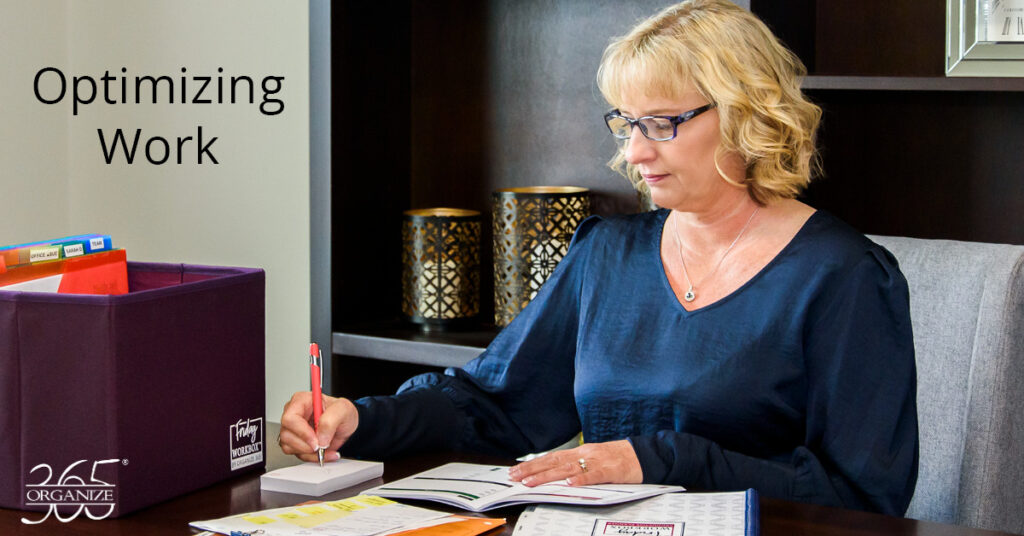
Optimizing Work
For all of my different kinds of work, I want to apply the same level of planning, foresight, and productivity. I treat my unpaid work as important and valid as I do my paid work. One of the most important ways I was effective in my different kinds of work was to establish an organizational structure. I separated my work hats into different baskets – one for each kind of work. I used the container to hold ideas, actionables, and to-dos.
Having a separate basket for each type of work helped to physically
represent how I was spending my time and what my priorities were.
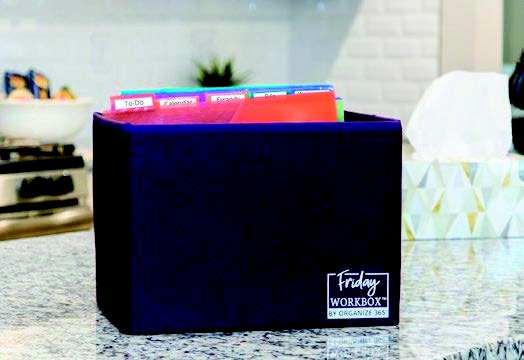
Friday Workbox®
A Friday Workbox can be used for any kind of work that you do outside of managing your home. Every Friday at 2pm, I get my email to inbox zero, prepare my calendar (get papers ready, confirm the upcoming meetings for next week, etc.), and review correspondence and make decisions. To learn more about Workboxes, check out Podcast Episodes 232, 250, and 270.
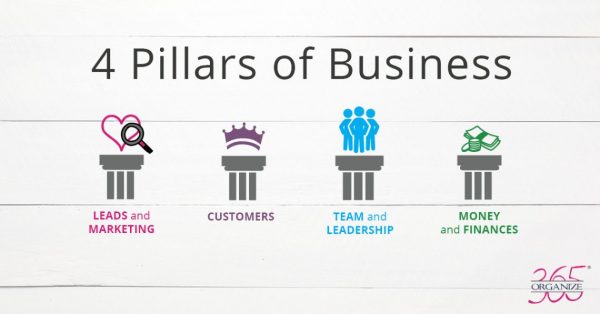
4 Pillars of Business
One of the reasons that the Friday Workboxes are so effective in
systematizing your work and keeping your papers organized is because they focus on the 4 pillars of business. Every business grows and succeeds by focusing on these pillars: Leads & Marketing, Customers, Team & Personal Development, and Finances & Administrative Tasks.
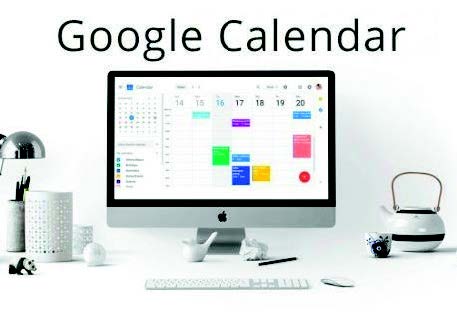
Google Calendar
I organize all of my different kinds of work on my Google Calendar using color coding. I use time blocking to ensure I am able to make time for my different kinds of work and to ensure the tasks for each one get done. By color coding, I can see at a glance how I am spending my time and how my different roles are represented in my week. As part of my calendar, I also schedule driving time, this was especially helpful when my kids were in middle school.
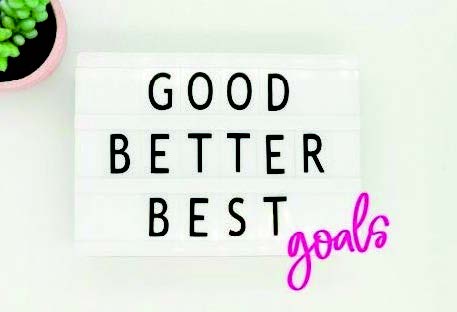
Good/Better/Best Goals
I am an eternal optimist and I set big goals. I set dream level goals for
almost all areas of my life—income, customer enrollment, weight loss, and so on. I can accept progress toward my goals as good enough. Good, better, best goals allow me to set goals at different levels, some reasonable and some that are a stretch. This allows me to dream and focus on moving towards success in all of my different kinds of work. Listen to Podcast 198 to learn more.
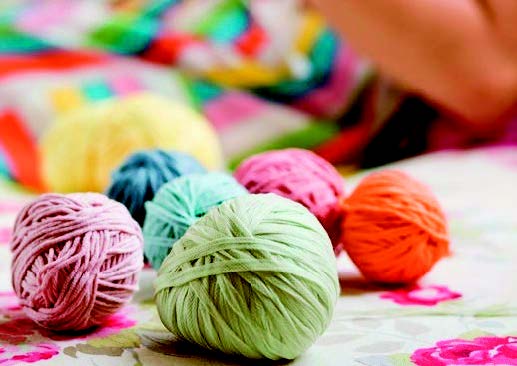
Passion Projects
In addition to our work for a paycheck, and our other work in and around our home, most of us have passion projects. A passion project is anything you can do where time disappears. These are things you can work on all week that light you up inside, but these rarely have a financial reward. Most adults have 1-3 active passion projects. Much like our many kinds of work, our passion projects can benefit from a Friday Workbox to hold our paperwork and from the same skills of organization and productivity. Learn more about Passion Projects in Podcast Episode 126.
Special Circumstances that Impact Your Organization – Part 8
I want to give you the ability to look at your life circumstances and understand the ways in which they are impacting your organization. Getting your thoughts and mindset ordered is vital to ordering your physical spaces. I want to share with you some life circumstances and talk about how they affect your thinking and your organizing work.

Unexpected Events
In life, we experience unexpected events that alter our journey to
organization. These are things that happen and are unexpected in terms of timing and how we react to them. I have shared many of the unexpected events in my own life; I have experienced infertility, became an adoptive mom, had my parents divorce when I was in my thirties, walked with my father as he became ill and passed away, became the executor of my father’s estate, and now I am safe at home during the global pandemic of COVID-19 in 2020. Every life will face some unexpected events, but the principles for surviving (and even thriving) through these events are the same.
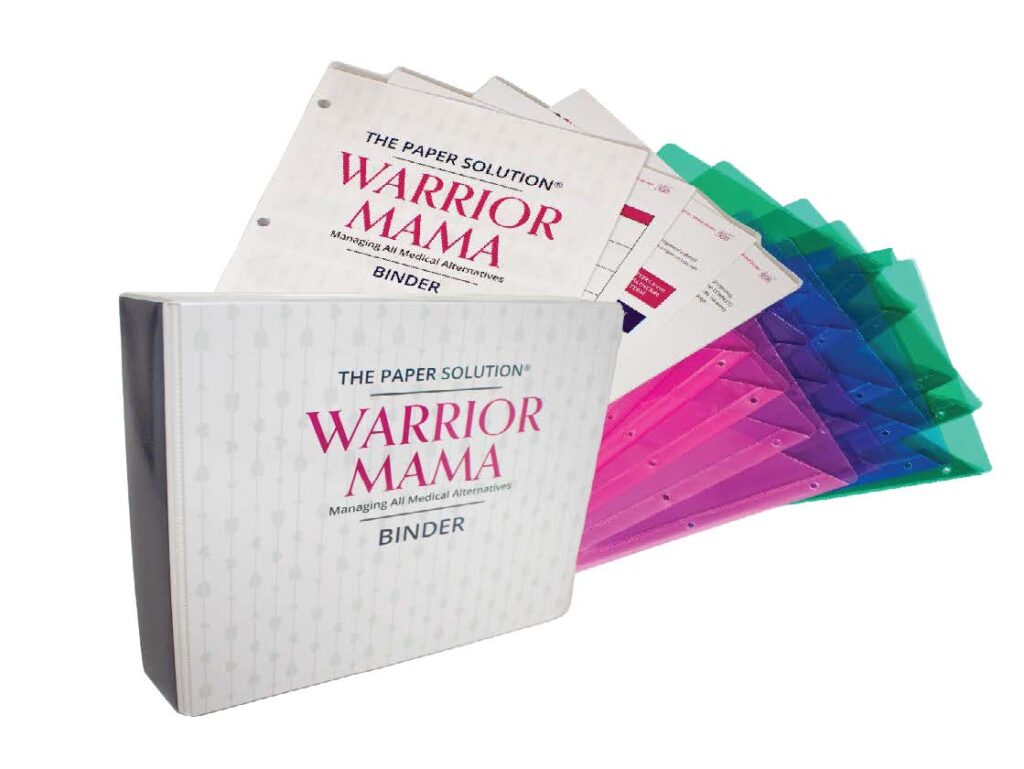
Warrior MAMA
I deeply believe that each parent and child relationship is matched
purposefully for the benefit of all. Your parenting style and your child’s unique need is matched exactly the way it is supposed to be. Both of my children had special needs as they were growing up, and our family resources (time, money, and energy) were spent helping our kids become successful adults. Along the way, I grew as a Warrior Mama. When I call myself a MAMA it stands for Managing All Medical Alternatives. I became an expert in supplements, therapy, and alternative treatments in order to best advocate for my children. In the podcast, you can hear some of my stories about vitamin research and supplements that I researched in order to help my children’s behaviors.
Organize 365 offers a Warrior Mama IEP Binder to help you if you are
facing the unexpected event of caring for a child with a special need as they progress through school. This binder is focused on helping you keep the educational advocacy paperwork organized for your child. If your child has significant medical needs, a Medical Binder is likely to be more helpful. And, some children will benefit from having both, especially if their needs are highly complex. You were put here to be the MAMA for your child. I have walked this path too, and I am here to support you and help you stay organized so you can best help your child.
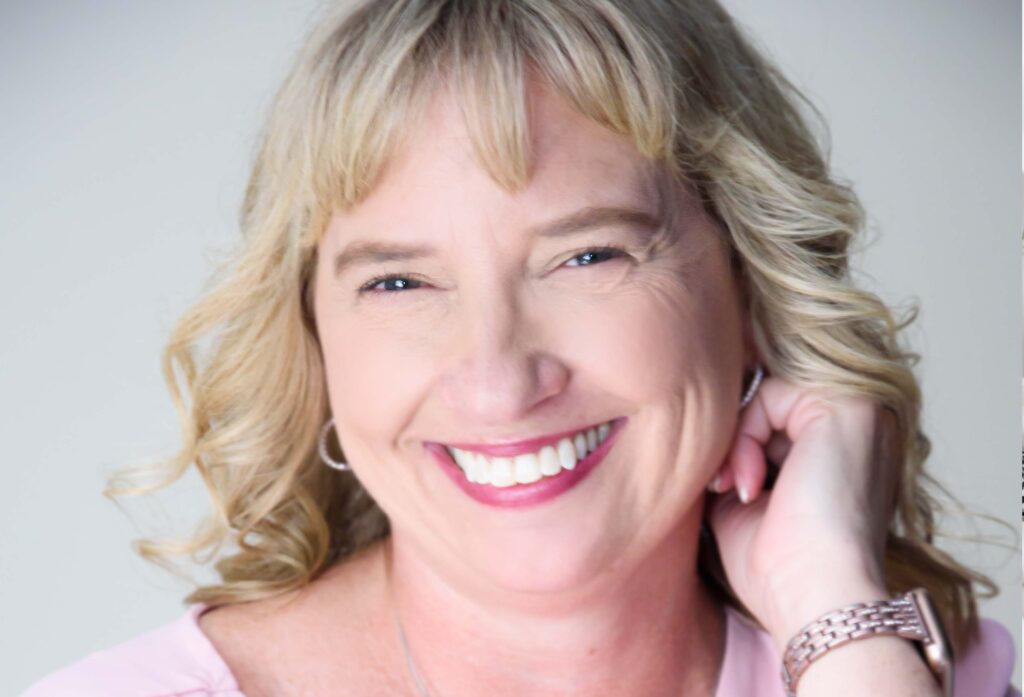
How ADHD Affects Home Organization
ADHD is a disorder of time. For people with ADHD, time passes differently – sometimes it is hard to focus and other times there is a hyperfocus. People with ADHD (kids and adults) can learn to do anything. Sometimes it takes longer to complete a task. Sometimes it takes longer to learn the skills. Sometimes skills are acquired later in life. But, organization and executive functioning are learnable skills.
I wrote the book How ADHD Affects Home Organization: Understanding the Role of the 8 Key Executive Functions of the Mind to help adults understand how the brain works and to find strategies that actually work for helping you get (and stay) organized. The book deep dives into six of the eight executive functions and what they look like when applied to organizing the inside of your home. You can listen to Podcast Episode 174 where I share more about the book. There are many studies about the impact of ADHD on work and school, but there is little about maintaining a home. The home environment has less structure and accountability, and can be a bigger challenge. I share how you can learn to create structure and supports to help you learn the skills of getting organized.
For more information about How ADHD Affects Getting Organized you can refer to Podcast Episodes 94,
95, 96, and 97. Podcast 98 is 5 Steps to Getting Organized with ADHD. ADHD Organization Q&A is Podcast
Episode 309.
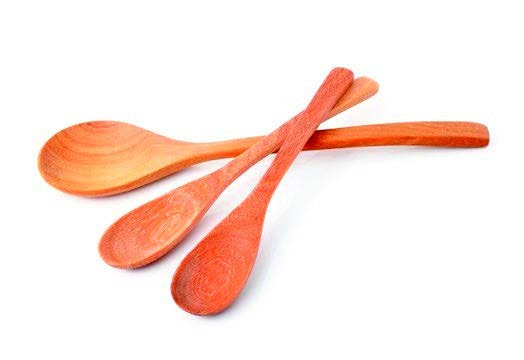
Chronic illness (and other physical limitations) can create circumstances where you physically cannot get organized independently. In Podcast Episode 244, I share what I have learned about Christine Miserandino’s Spoon Theory. Spoon Theory is a way to understand that we are each blessed with different levels of energy and physical capacity. When working from a place of limited spoons, it is important to manage your energy level.
Everyone can learn to be organized, but we are not all starting with the same amount of energy for completing the physical tasks of getting organized. How you spend your spoons, and what you spend your spoons on is a very important decision. Find what is uniquely the essence of you and spend your energy doing that.
The Paper Solution® - Part 9
Paper is my thing. I love writing on paper, I love organizing paper, I love everything about paper. But, as a professional organizer, I realized there is very little information available about how to organize paper, the categories of paper we deal with in our lives, and how to actually use paper in everyday life. No matter when you begin your transformational journey (or when you need to reset or restart), this information will be here as a reference for you.
Less Paper, not Paperless
Paper is my thing. I love writing on paper, I love organizing paper, I love everything about paper. But, as a professional organizer, I realized there is very little information available about how to organize paper, the categories of paper we deal with in our lives, and how to actually use paper in everyday life. No matter when you begin your transformational journey (or when you need to reset or restart), this information will be here as a reference for you.
Although we have been promised a “paperless” society, the reality is that the US is a paper-based society. We are able to handle more things digitally than ever before, but we still need physical paper for many things in life. In America, our vaccine cards, birth certificates, vehicle titles, and medical records are all physical paper. Other parts of the world have digital systems for these things, but because of the uniqueness of our government and our focus on freedoms, we do not have universal, digital records for these things. In my own life, physical paper has saved me over and over. Paper means that I can avoid expensive professional fees, and it gives me authority with lawyers, doctors, and school principles. In America, paper is the way I (and you) can substantiate claims and provide proof of what you know. Paper is useful in settling estates, advocating for children during IEP meetings, and for communicating vital health information during a medical emergency.
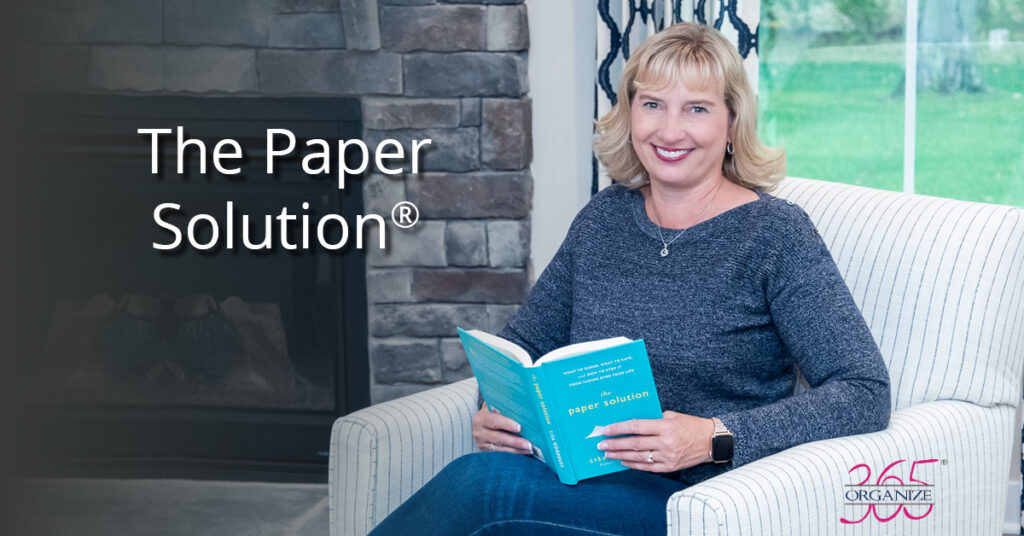
The Paper Solution®
The Sunday Basket is the foundation of an organized home. The Sunday Basket starts as a physical basket that holds actionable papers. But, really, it is so much more. It is a weekly habit of processing and looking proactively at the upcoming week that keeps the household running more smoothly. In 2020, I published The Paper Solution as a physical book. It is written to change your mindset about papers, and to give you the practical tools to get your household papers organized.
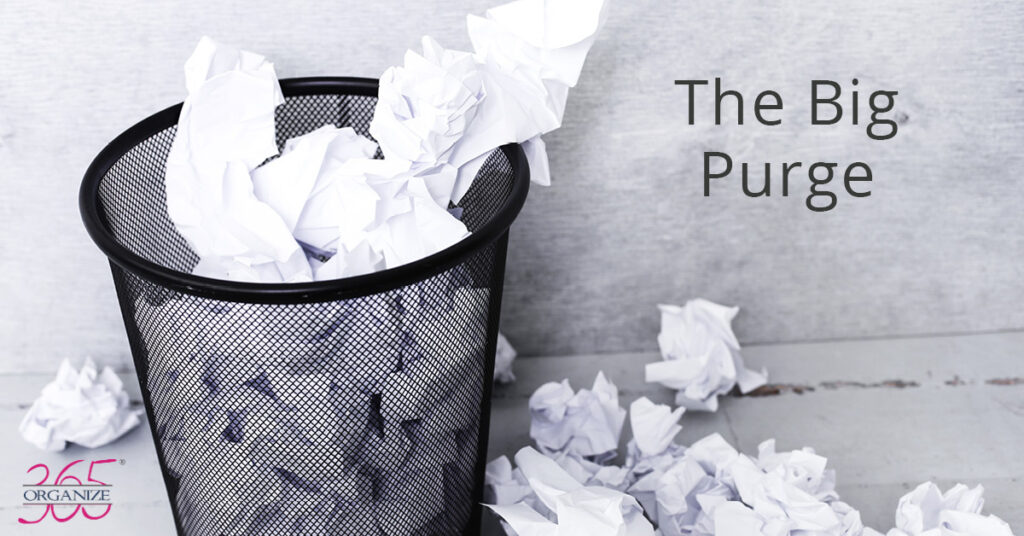
The Big Purge
As a professional organizer working in people’s homes, I saw over and over that file cabinets allow us to save much more paper than we ever need. Surprisingly, most Americans can get rid of 80% of their filed papers and will never need them again. You can declutter your papers in as little as 15 minutes a day. Take a few file folders out and review them. Make piles for papers to recycle, shred, and save. Put the “save” papers back in the file cabinet. If you have ever taken care of a loved one’s papers, you know how vital it is to have important papers organized and easy to find. Take care of the people you love by clearing out all the old papers that no longer need to be stored or saved.
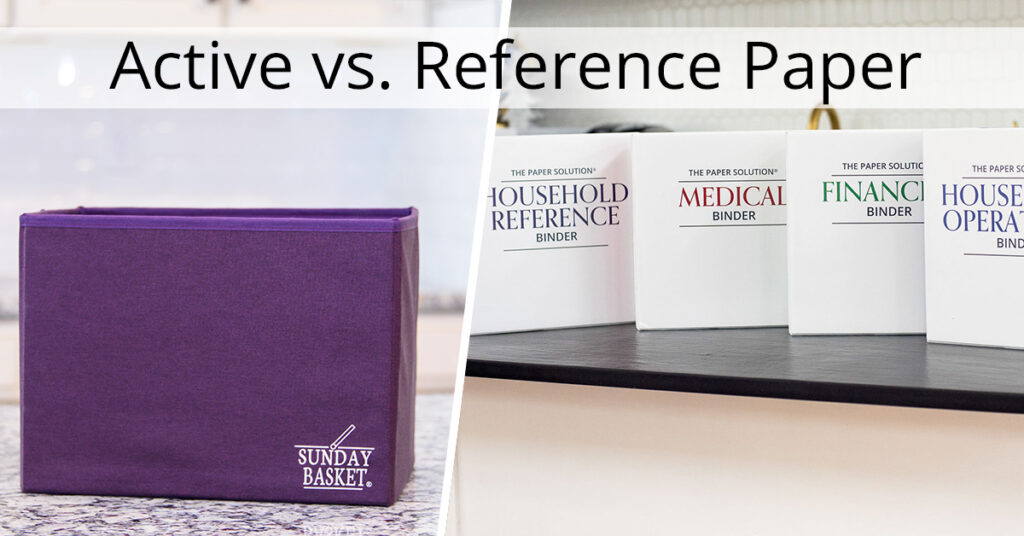
Types of Paper - Active vs. Reference
Of the papers that should be kept, there are two main categories:
Active papers are papers that require you to take some action — bills to pay, grocery lists to buy, or a note to book that vacation hotel.
Reference papers are all of the other papers we save — bank account numbers, retirement statements, wedding cards, and love letters. These we may look at again sometime in the future, but they mostly need to be kept safe.
Organize 365® Binders - Part 10
After some ongoing analysis, I realized that household paper generally fits into four categories. I thought about all of the information it took to keep my household organized and my family functioning. There were no ready-made systems for being a caregiver and executor when my father passed away. I have worked with the members of the team who have gone through similar life challenges to try and make our binders as broad and effective as possible. But, because they are binders, they can also be adapted to handle any life situation you encounter. I created a reference binder for each of the four areas of essential household paperwork. Tax forms and kid’s memories live outside of this system, but everything else that needs to be saved can typically be fit into one of the four essential binders.
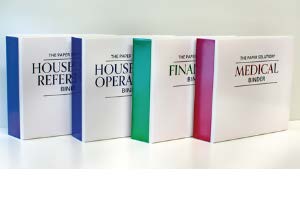
Ditch the File Cabinet
After years of helping people get their files color-coded and organized in a file cabinet, I had several clients who were facing emergency evacuations. The reality was that they did not have time to pull out important documents during their emergency. That is when I realized that our reference papers need to be portable and there must be a constraint on how much paper we keep. It’s not realistic to load up an entire file cabinet when trying to get away from a forest fire or a hurricane. For several years, I have been teaching people to ditch the file cabinet and replace it with several essential reference binders.
The Four Essential Household Binders
Organize 365 sells physical binders to help with your household paper organization. The contents for each binder is also detailed in The Paper Solution book. However, our physical binders have multiple pages of worksheets that help get the information from the many places it lives organized into one location. Setting up the binders will make your life more organized and easier. But, it is also a gift for your family. If anyone
else ever needs to take over any portion of your #adulting, they will have what they need at their fingertips.
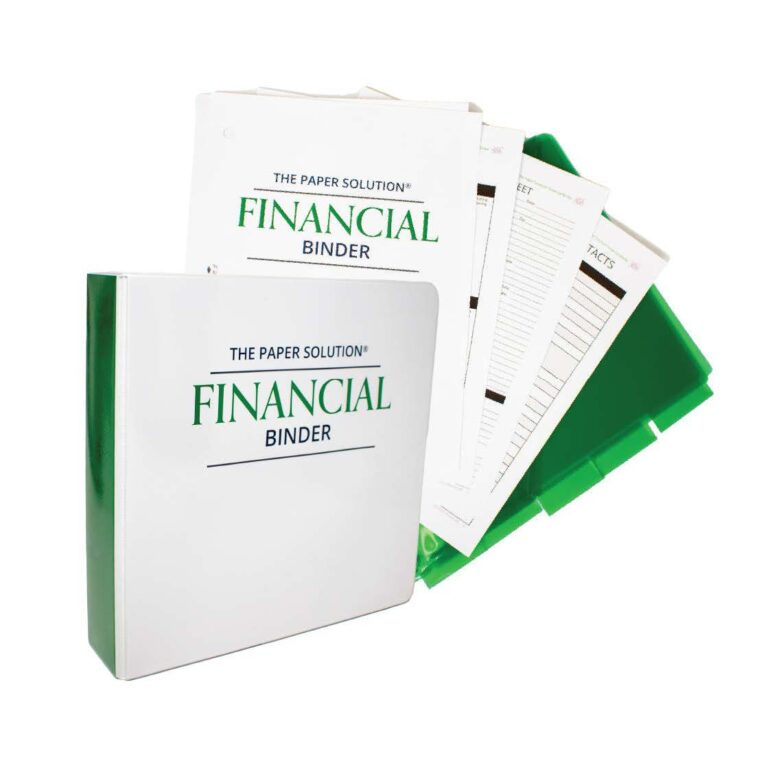
Financial Organizing Binder
This binder details your current and future financial information. It includes retirement accounts, vehicles, insurance, home inventory, estate planning, and funeral plans. This binder was originally designed for someone to be able to take over your financial life and close your estate. It can help with tracking bills, selling a house, or canceling a lease. I estimate that in order to have a comprehensive
financial binder, you will get 30% from your file cabinet, 30-40% digital information, and 30-40% in your memory or on random papers in your home.
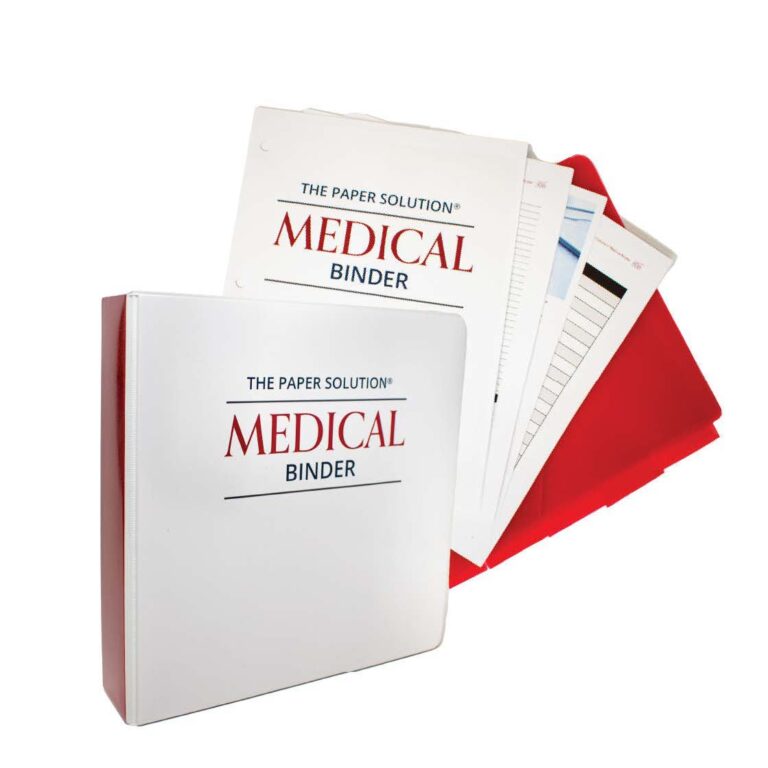
Medical Reference Binder
This binder is designed to be used mainly by a caregiver. You can set one up if you are caring for someone else, or you can set one up to make it easier for a friend or family member to care for you. Although medical records are electronic, they are siloed in each medical practice. Many of the software systems do not effectively share information. Pharmacy, doctors, dentists, specialists, and
insurance companies all have their own record systems in America. I estimate that 5-10% of this information lives in your file cabinet right now. 40-50% is online in some kind of medical record system. The other 40-55% is not recorded anywhere (yet!). Your medical binder is also a perfect place to keep a list of questions for your next appointment, write down observations, record behavior changes, and communicate with other caregivers. This binder has a comprehensive workbook that includes a health history, childhood milestone tracker, symptom recorder, and place to record what you have already attempted. Life is short and the unexpected happens. We will either need caregivers or be caregivers. Having a portable, concise medical reference binder will help you to get the best care.
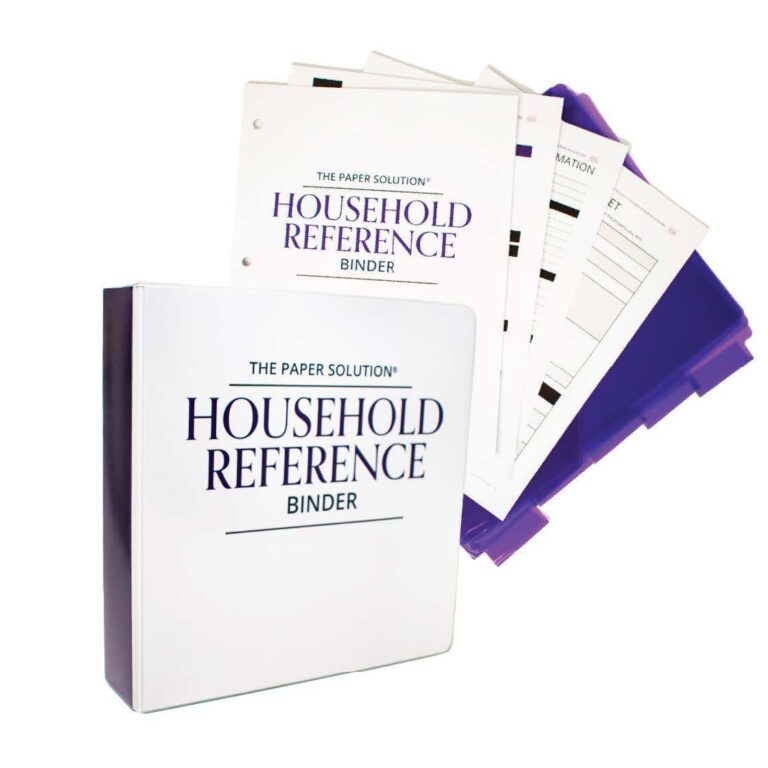
Household Reference Binder
This binder is the one I use most frequently. It is designed for people who are homeowners but can be used if you rent too. This binder is designed to have all the reference information you would keep organized if your house was a person. If you were selling your house tomorrow, you could hand over the binder to the new owners. The binder contains home improvement information, paint colors, appliance information, and landscaping details. Typically, 80% of the contents of this binder are already in your file cabinet. Manuals, make and model numbers, serial numbers, and similar information can be stored in the binder. I also recommend keeping receipts for purchases here too so you know when it was purchased and how much it cost.
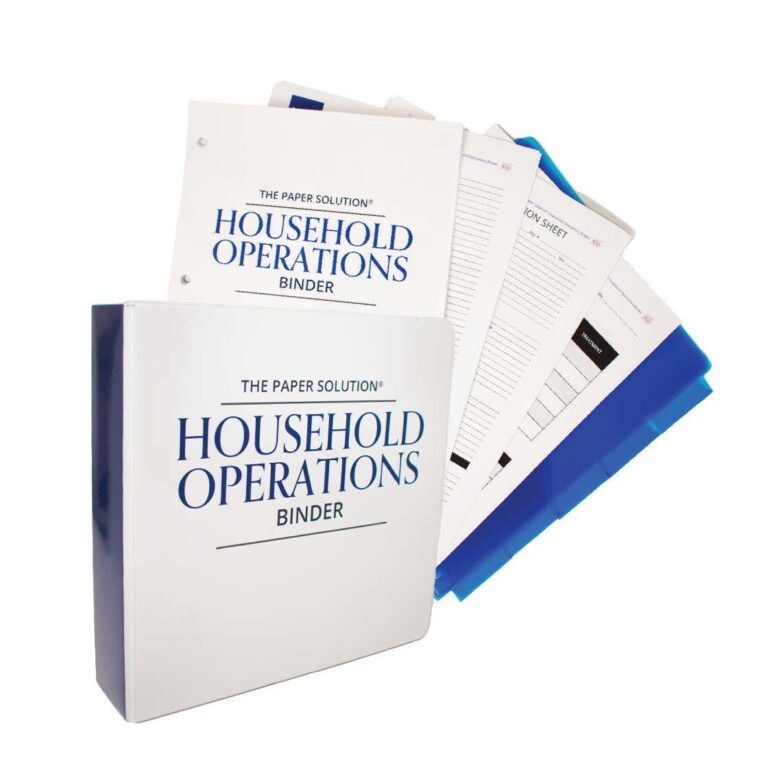
Household Operations Binder
The Household Operations binder is all of the paperwork and information you need to run your household. No matter what kind of
dwelling you have, you need a place to track meal planning, cleaning
schedules, events, holidays, vacations, and pet information. As a
teacher, I think of this binder as my lesson plan book for my family.
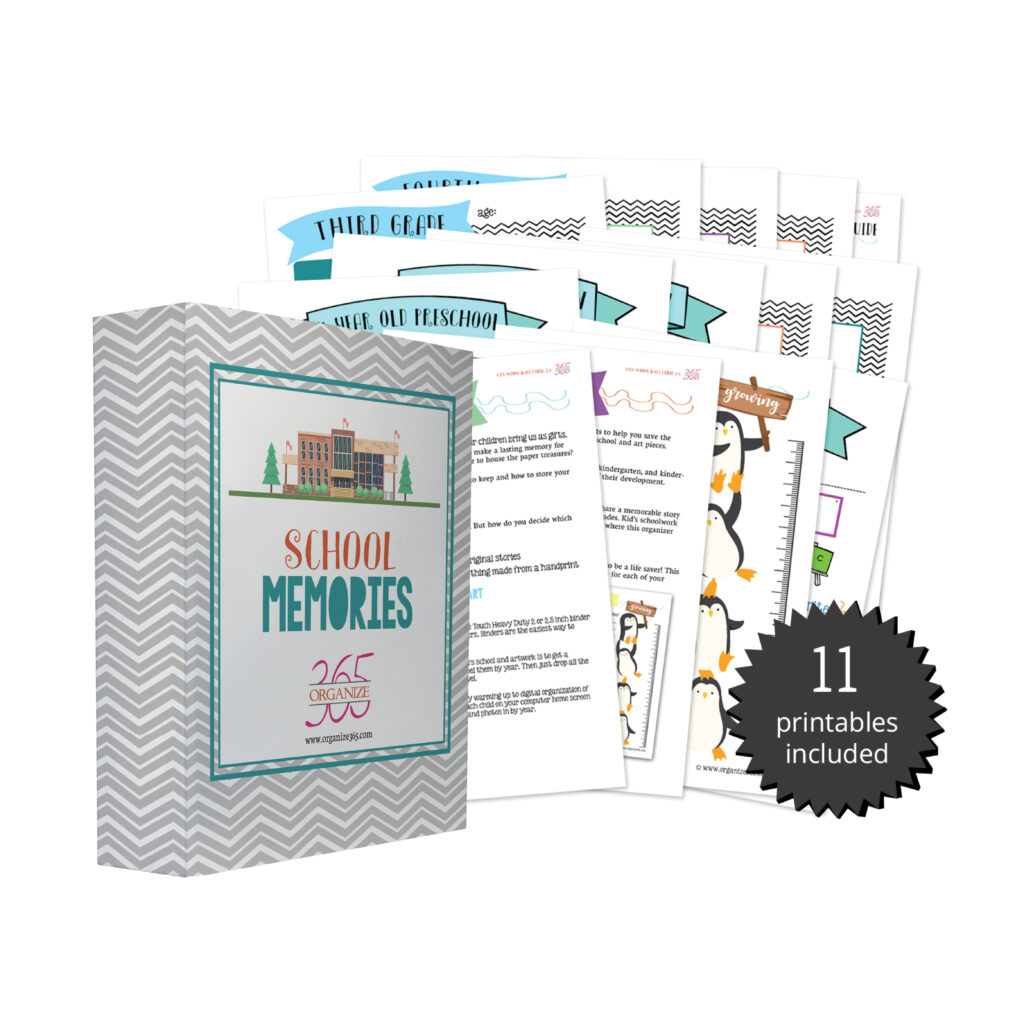
Kids School Memories
Kids enjoy their own memories most when they are young and can see their own growth and progress. When your kids are in the midst of their accumulation phase or survival phase of life, they probably will not have time to sit down and look through their old math tests and spelling lists. But, when your kids are young, you might be amazed at how much joy they get from looking at their artwork, stories, and projects. They will sit down with their binders and tell stories about school that you might not otherwise get to hear. Have your kids help to make their own memory binder and then use them. Sit down together and see what they have to say about certificates, awards, and their own creations.
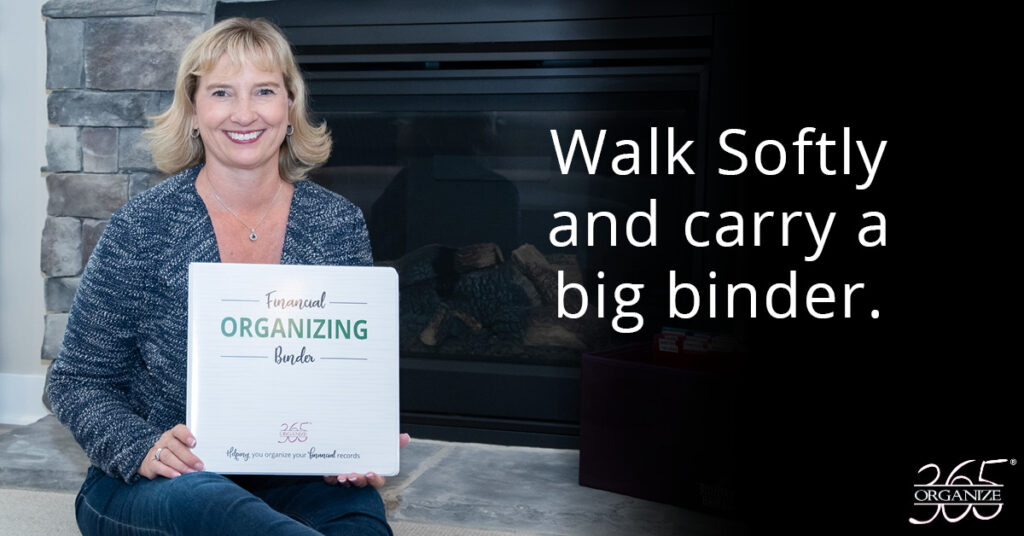
Walk Softly and Carry a Big Binder
Your binder will hold essential details and can cut down on the time
you need to spend to get your support professionals up to speed. This gives you more effective time during appointments. In my own
experience, having paper documentation raises your expertise level
with professionals and gives you immediate credibility.
Organize 365® Research - Part 11
Several years ago, as I was writing the Organize 365® vision, I knew that I wanted to conduct research to bring to light the organizational needs of Americans. I want to be the go-to resource for knowledge about home and paper organization. When we developed the first survey, I needed to figure out how to define “housework.” The research questions ended up focusing on four different types of housework.
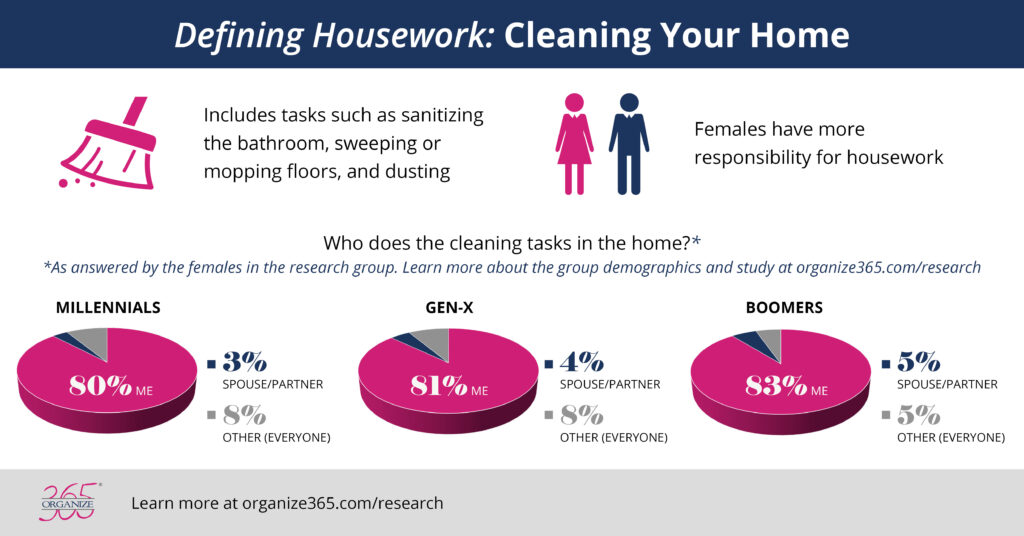
Cleaning
Cleaning is related to the dwelling and covers any task a cleaning company would do. Learn more in podcast 422.
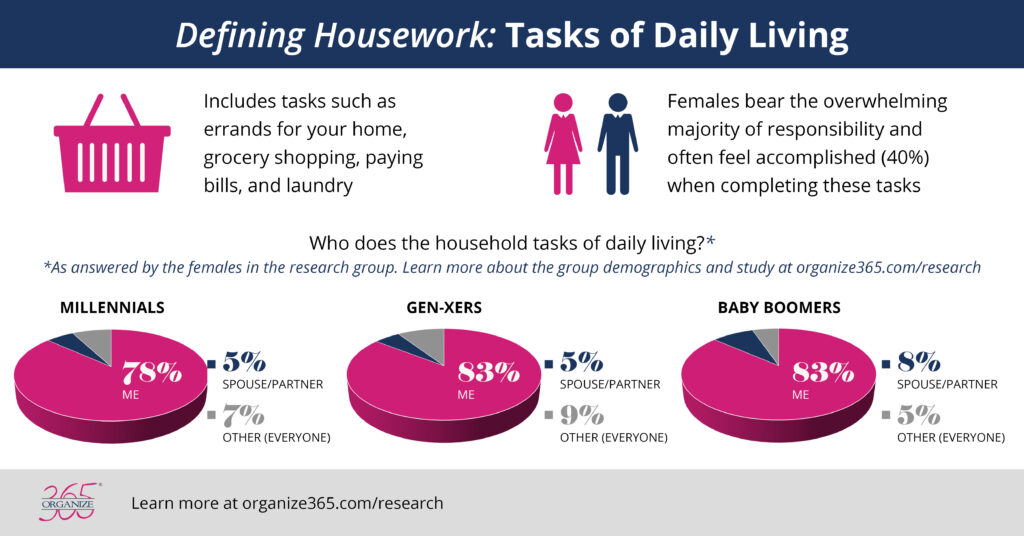
Tasks of Daily Living
These are tasks related to the person regardless of where they live.
These are the tasks defined by Social Security Disability and include
things like preparing food, consuming food, running errands, planning meals, and washing laundry. Learn more in podcast 424.
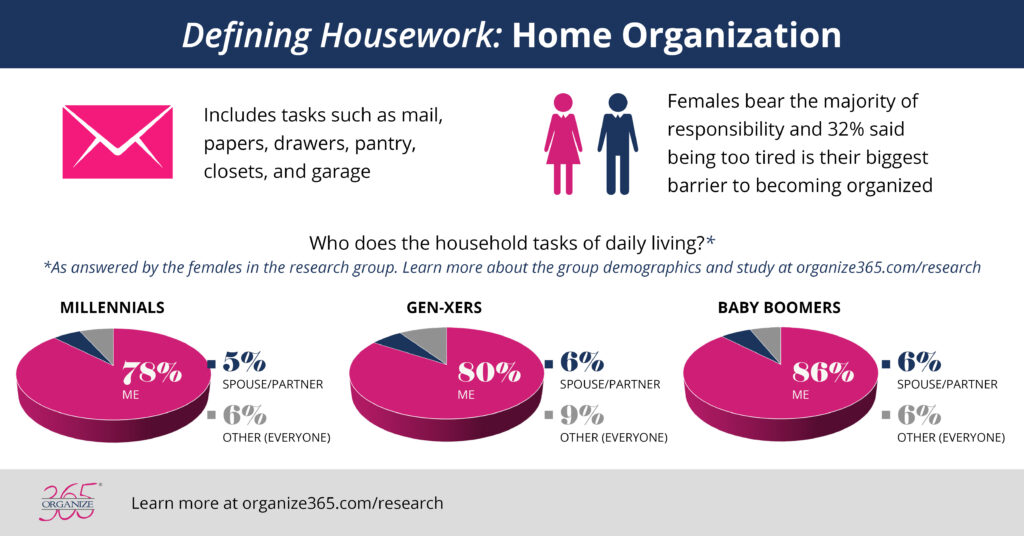
Organizing
Is an optional housework activity where a person makes an investment of current time for a future return of time. This is completely optional and customizable. Time spent today organizing results in an exponential time in the future. Often this involves setting up systems of organization and can be applied to renters and owners. Learn more in podcast 426.
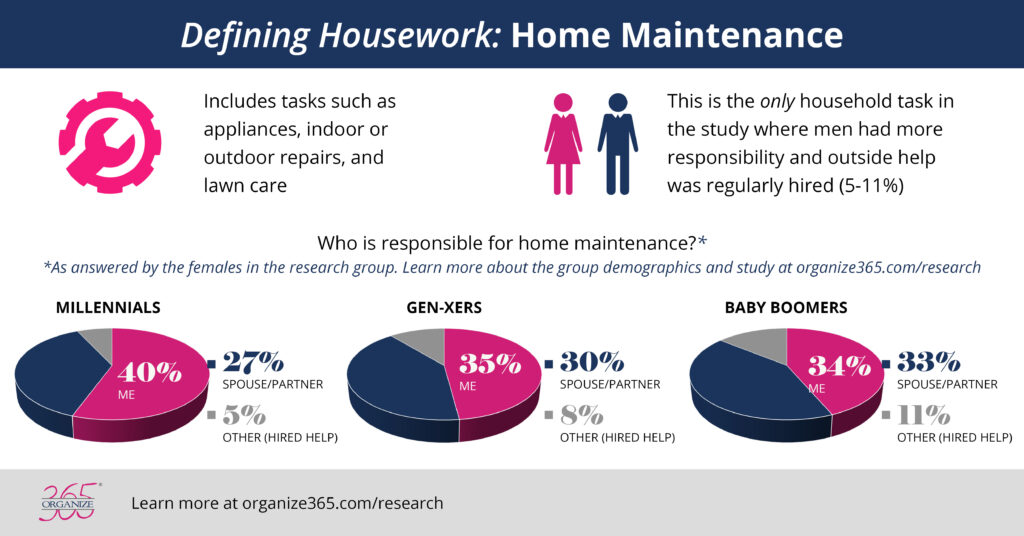
Maintenance
Is an optional housework activity where the property owner makes an additional infusion of money into their investment (property to
maintain and improve their property. In the long run, maintenance
expenses increase the value of the initial investment. Learn more in
podcast 428.
Swiss Cheese Organizing - Part 12
We often talk about “getting organized” or “having an organized home.” The reality is that we are often very organized in one area of home organization or even in one sub-category. You may have a very organized wardrobe, but struggle to keep your car decluttered.
Although organization IS a learnable skill, we do not all learn the skills needed in the same way, at the same time, or across all areas of the home. Analyzing what areas of our life are organized can be helpful in applying those skills to the other, less organized parts of our home and life.
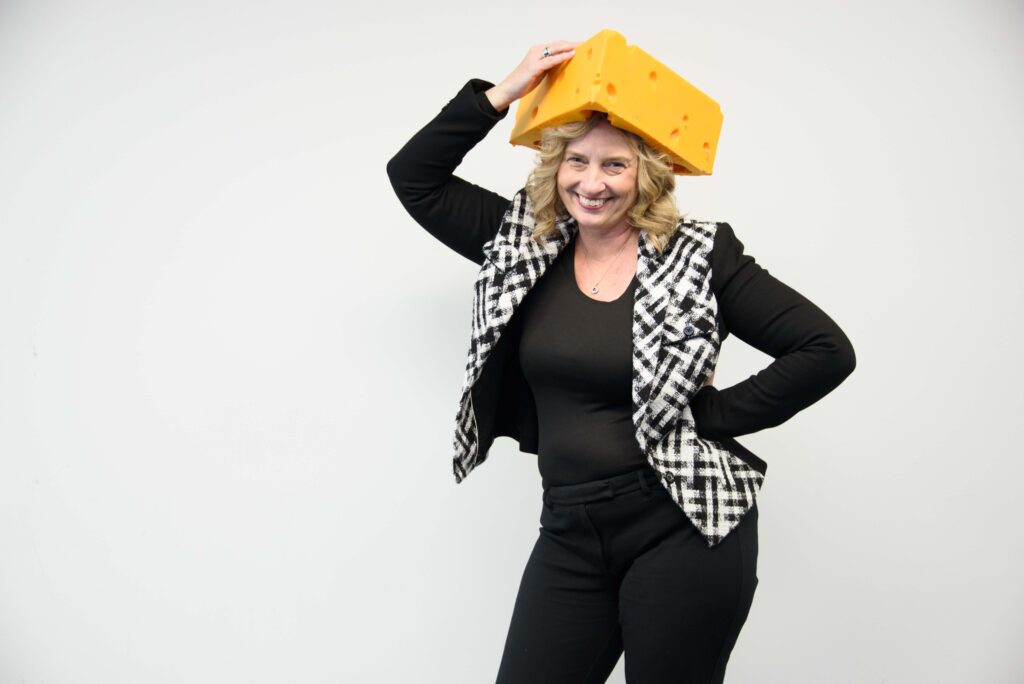
Swiss Cheese Organization
We often talk about “getting organized” or “having an organized home.” The reality is that we are often very organized in one area of home organization or even in one sub-category. You may have a very organized wardrobe, but struggle to keep your car decluttered. Most of us end up with “Swiss Cheese” Organization. We have some parts of life that are very organized and functional, while other areas – like the holes in a slice of Swiss cheese – are areas where we struggle.
Although organization IS a learnable skill, we do not all learn the skills needed in the same way, at the same time, or across all areas of the home. Analyzing what areas of our life are organized can be helpful in applying those skills to the other, less organized parts of our home and life.

ADHD and Executive Function
Is it possible? Can you put enough systems in place to correct or manage ADHD? After diving into ADHD and running all the tests, the ADHD expert was convinced I did not have ADHD. However, when we took a deeper dive into my childhood and who I was before Organize 365®; it was a clear picture of a person with ADHD. The expert explained that all the systems I have put in place, combined with hiring out the tasks that I struggle with…I have masked the fact that I have ADHD!
Isn’t it funny how the more you know, the more you realize that you know very little? Once we adopted children, I loved to play preschool with them. It wasn’t until a routine doctor visit that it was brought to my attention that I would be raising a child with ADHD. At this point, I craved information to help my children to succeed. I was lucky enough to attend seminars in Cincinnati with all the best doctors and learn about ADHD!
Now I’m embarking on my PhD journey, where I’ll be focusing on the brain and the eight executive functions. That’s right! I’m a lifelong learner and am confident that I have the systems in place that I need to be organized and succeed. It has come full circle – and I’m here to share it with all of
you!




